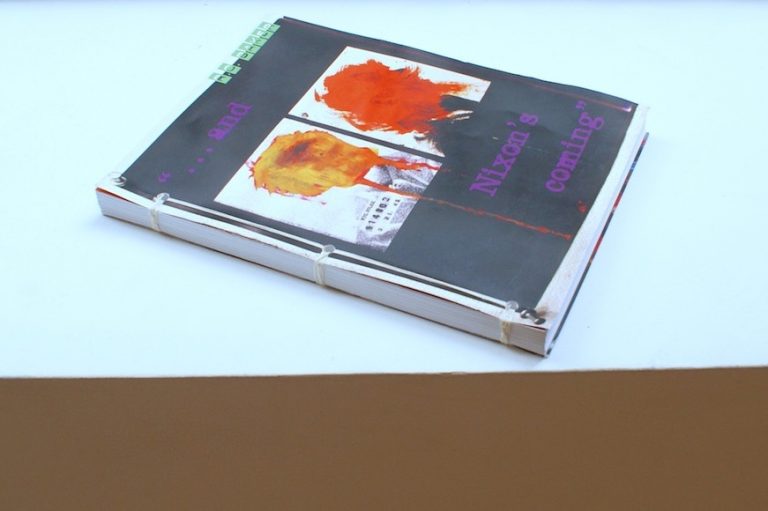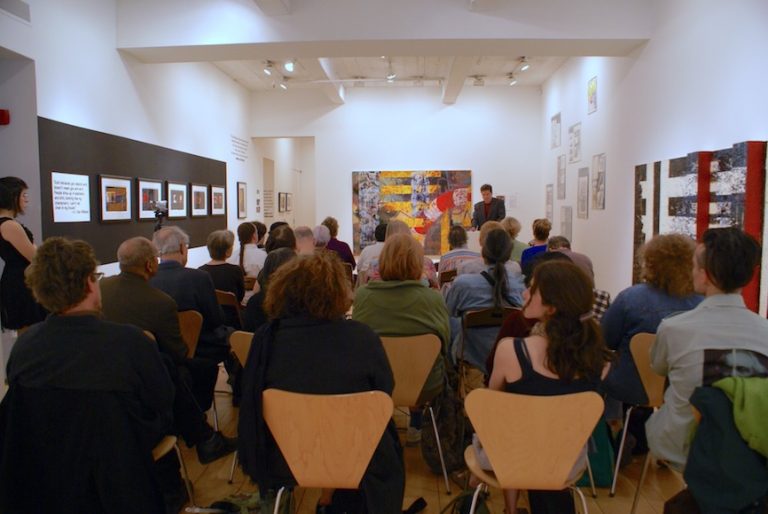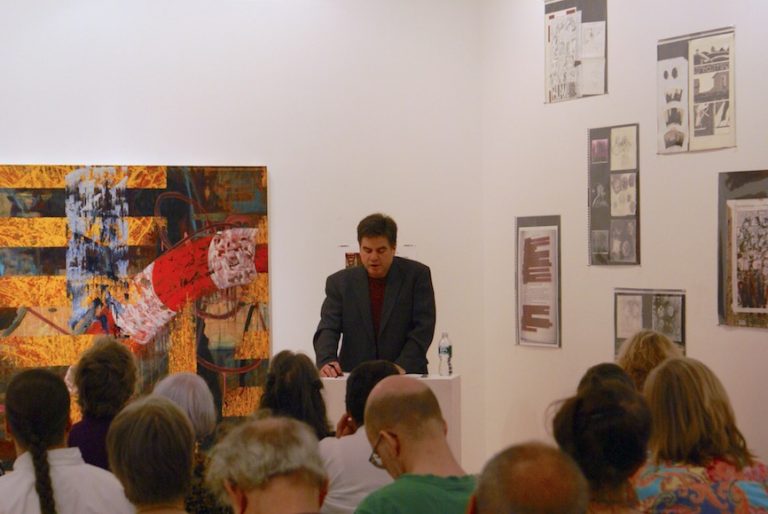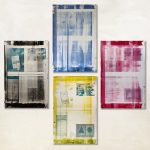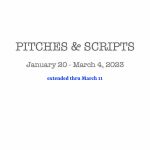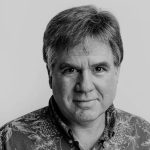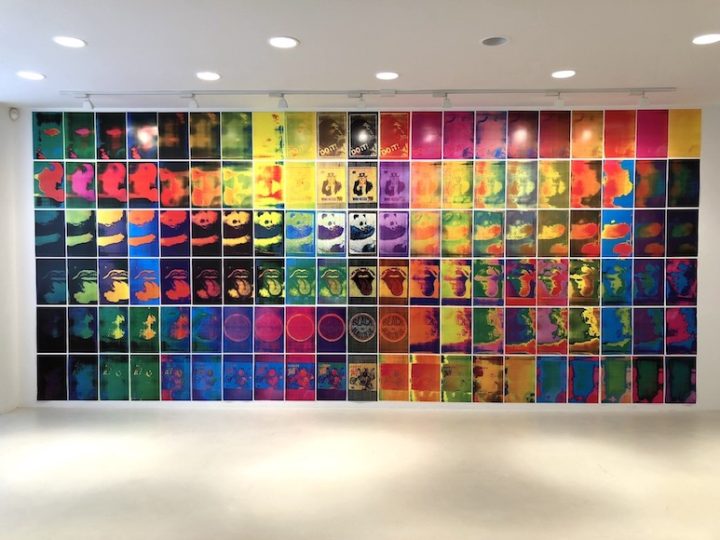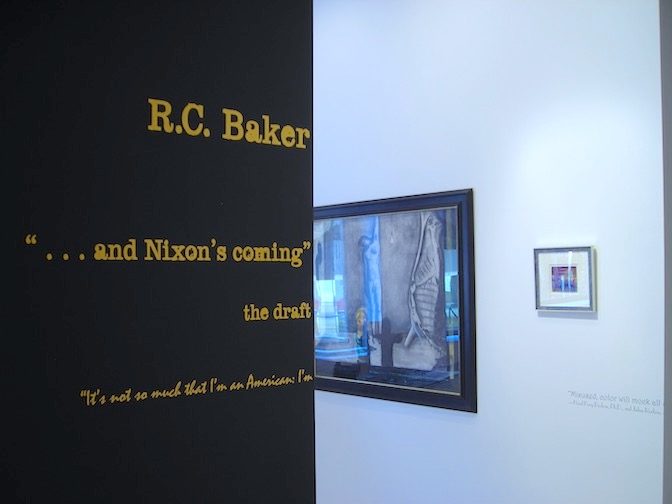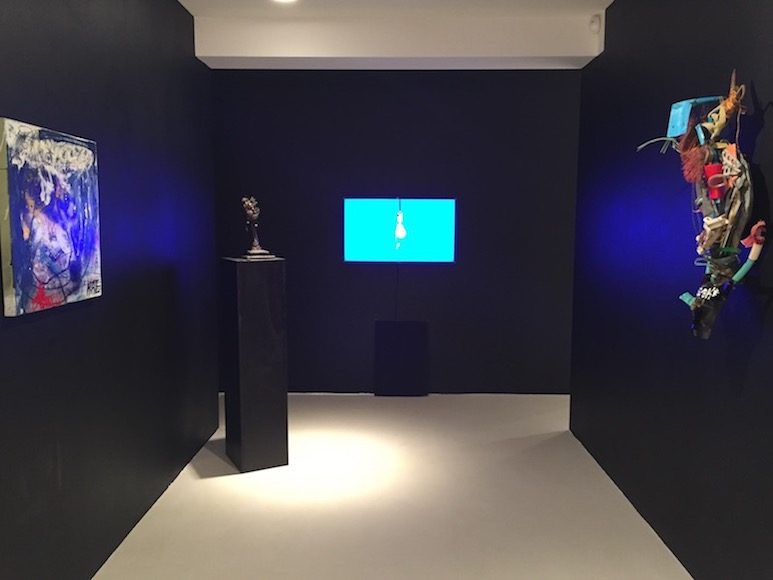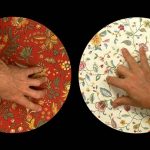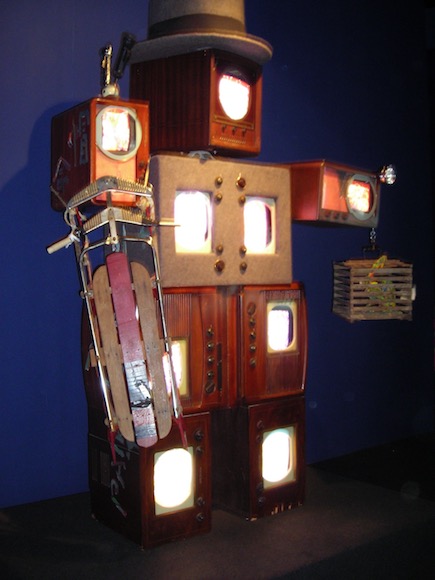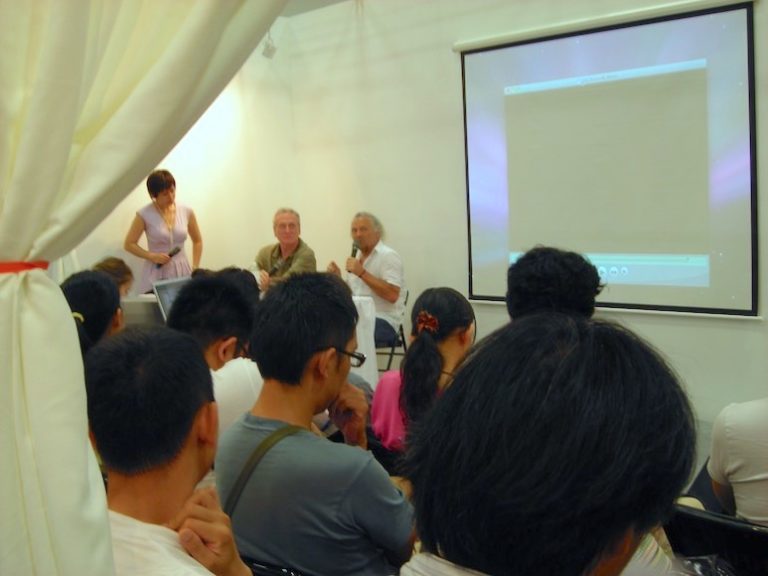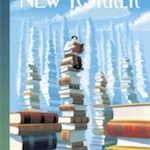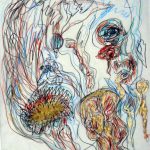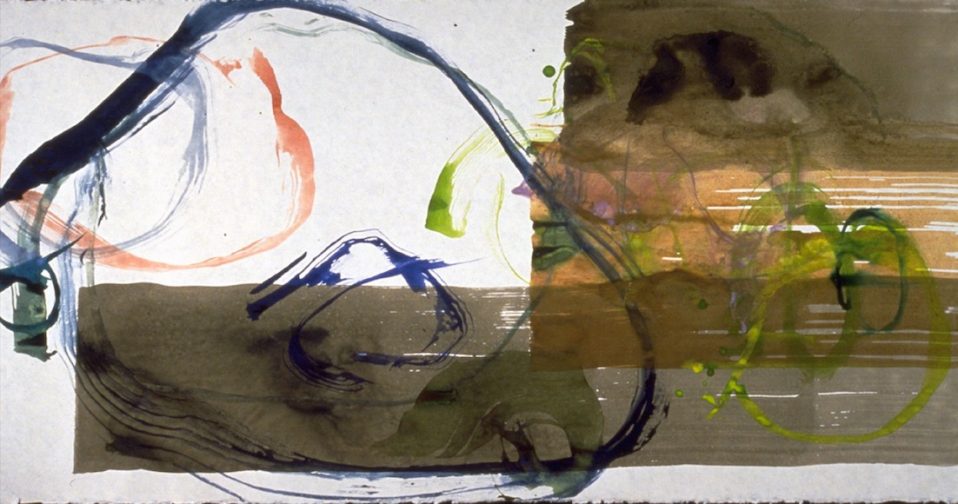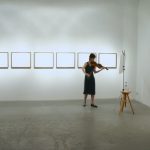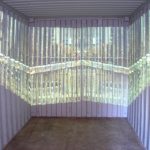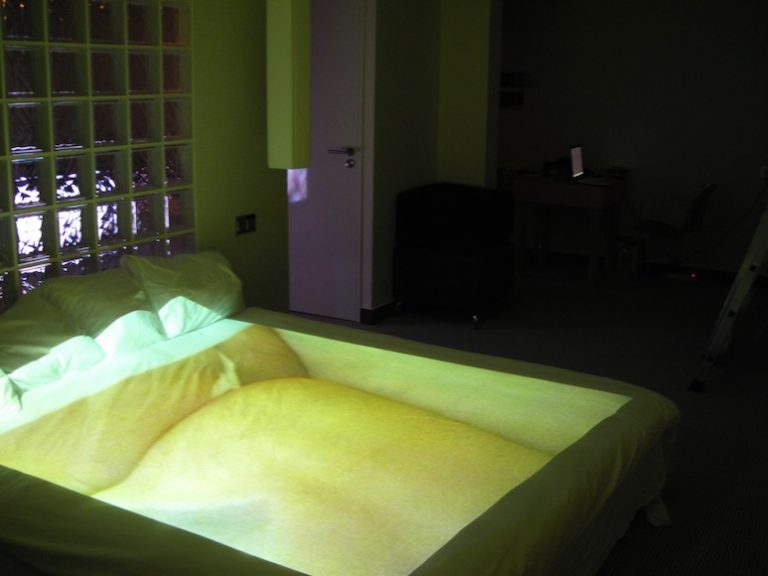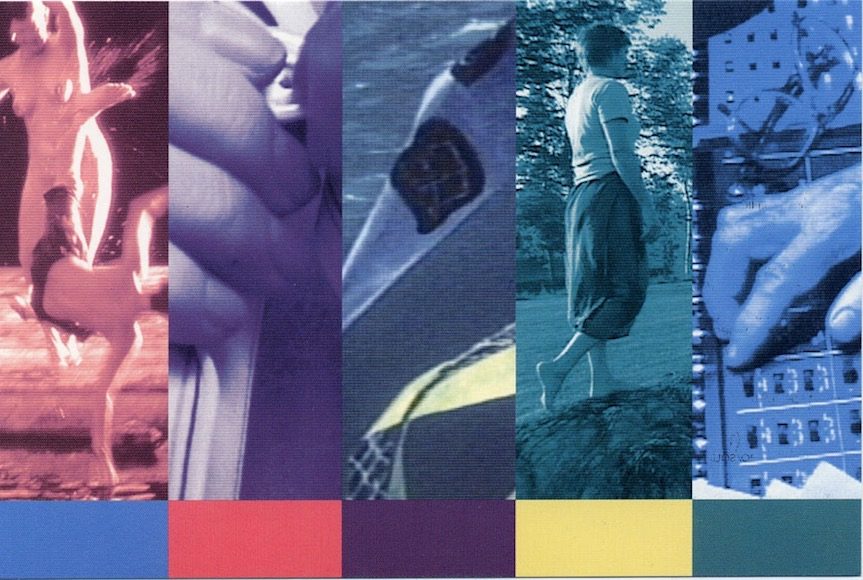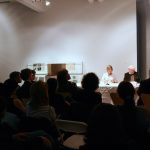Artist Talk with RC Baker ranging from Old masters to comic books, political echo chambers and the joys of dissolving 60s protest posters into psychedelic abstractions
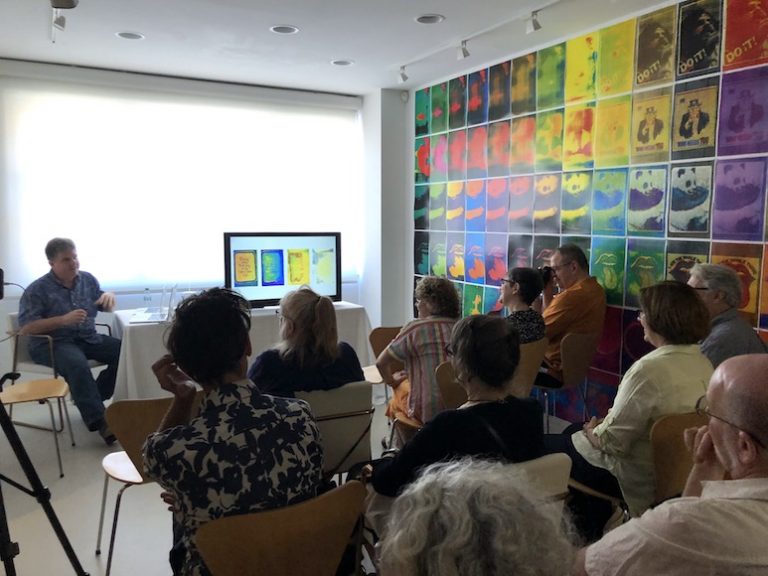
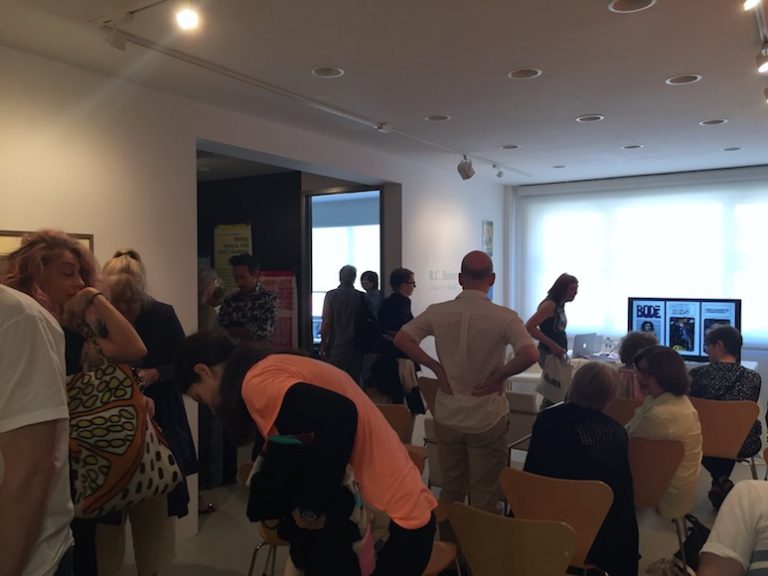
In conjunction with the exhibition Noise For Signal, R.C. Baker presented a talk ranging from Old Master paintings to comic books, political echo chambers, and the joys of dissolving 60s protest posters into psychedelic abstractions.
Saturday June 16th, 2018
Youtube video of the talk
Related:
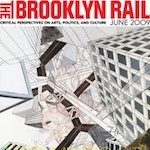
The Brooklyn Rail reviews RC Baker’s solo exhibition, “…and Nixon’s coming” the draft
BRIAN DAILEY

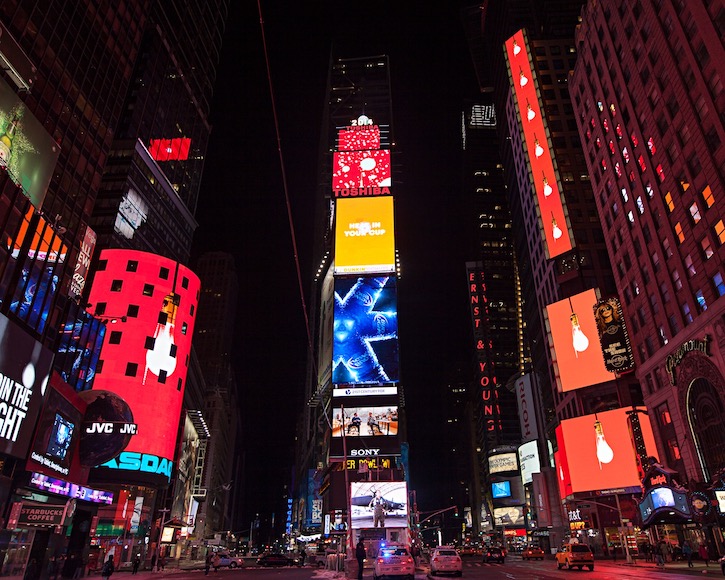
JIKAI
2013
Single-Channel Video
Running Time 4 minutes 55 seconds
Shown on multiple synchronized monitors in New York City in February 2014 as a featured video in the Times Square Midnight Moment series
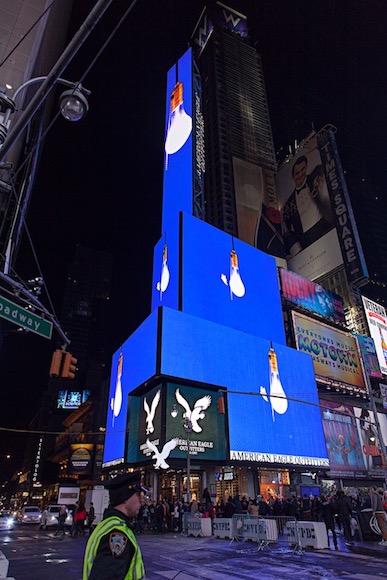
JIKAI
2013
Single-Channel Video
Running Time 4 minutes 55 seconds
Shown on multiple synchronized monitors in New York City in February 2014 as a featured video in the Times Square Midnight Moment series
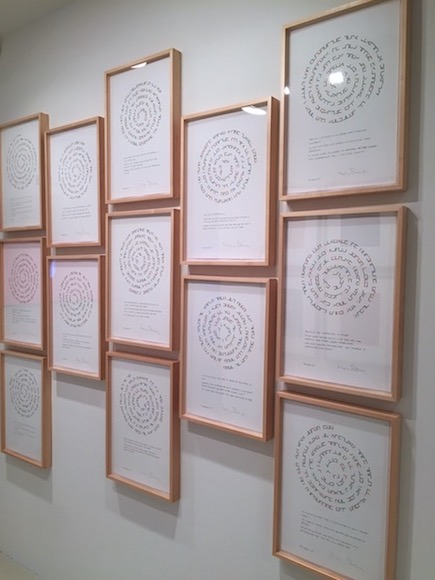
Riddles
Set of 13 works
2015
Watercolor, graphite, inkjet on paper
13 x 19 in. (33 x 48 cm)
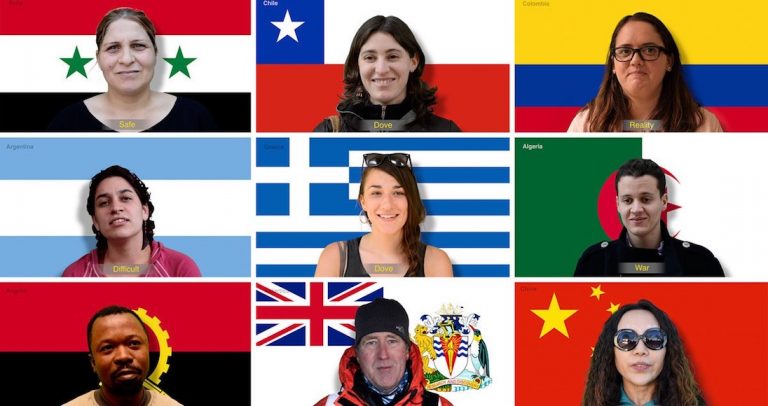
WORDS
2018
Multi-screen video installation
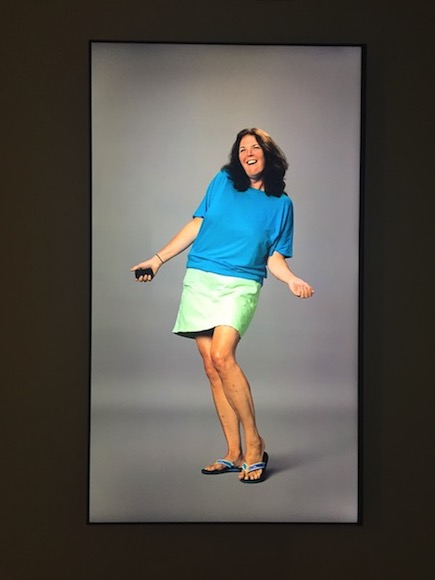
America in Color
2013
Single channel video
Running time 1 h 18 mins
Edition of 8 plus 2APs
American, b. 1951, Pittsburgh, California, based in the Washington D.C.
Brian Dailey’s work in a variety of mediums including photography, film, installations, and painting engages with the social, political, and cultural issues of our times. His life journey and its many peregrinations since launching his art career in Los Angeles in the 1970s have led him on a path of many surprising twists and turns, encapsulated in his creative vision as a self-described storyteller. Dailey’s art reflects his unconventional evolution as an artist and multifaceted life experiences, which include national level involvement in arms control and international security. The artist’s unusual experiences, which he approached with the same curiosity that has driven his art in diverse media, continue to provide a fertile source of inspiration in his unconventional creative practice such as the global video installation WORDS (2012-2018). Dailey has had solo exhibitions in Los Angeles, New York, Washington D.C., and Bulgaria and participated in a number of group shows in the United States, Europe, and Russia. His mid-career retrospective Declassified: Unraveling a Paradoxtook place at Bulgaria’s National Art Gallery in Sophia in 2014.
Education
Otis Art Institute, MFA, 1975
University of Southern California, PhD 1987 (Arms control, Russian studies, diplomatic history, dissertation on the Anti-Ballistic Missile Treaty)
Brian Dailey’s works are shown at The Rachel M. Schlesinger Arts Center, January 11 – February 8, 2019. Opening reception 5-7pm, January 23. The exhibition is organized The Rachel M. Schlesinger Arts Center in collaboration with the Department of Photography and Media of the Alexandria Campus of NOVA.
“GEOPOLITICAL PERFORMANCE”, by JULIANA BIONDO, OCTOBER 17, 2018, BmoreArt
DC-Based Artist Brian Dailey Confronts the Overlaps Between Art and Politics After a Career Working in Government and Tech
2018
Brian Dailey: Polytropos, Baahng Gallery, New York, NY
WORDS: Brian Dailey’s Contemporary Tower of Babel, American University Art Museum, Washington DC
2017
An Odyssey: Brian Dailey Digital Work, Dupont Underground, Washington DC
America in Color, Beacon Investment Corporation, Chicago, IL
2016
America in Color, Beacon Investment Corporation, Chicago, IL (through 2017)
2015
America in Color, Beacon Investment Corporation, Washington D.C. (through 2017)
Bulgaria in Democracy, City Art Gallery, Plovdiv, Bulgaria
Bulgaria in Democracy, National Assembly, Sophia, Bulgaria
2014
Declassified: Unraveling a Paradox, National Art Gallery, Sofia, Bulgaria
Jikai, Times Square Art Alliance, Midnight Moment, New York, NY
2013
Tableau Vivant and Project Morpheus, Stephan Stoyanov Gallery, New York, NY
2012
America in Color, Curated by Simon Watson, Stephan Stoyanov Gallery, New York, NY
2018
Absence and Presence: Arts in Foggy Bottom Outdoor Sculpture Biennial, Washington DC
2017
Fathom Experiment #4: Venus is Venus is Venus, Dupont Underground, Washington DC
TOGETHER: The Work of Paula Ballo Dailey and Brian Dailey, Joan Hisaoka Healing Arts Gallery, Washington DC
Alchemical Vessels, Joan Hisaoka Healing Arts Gallery, Washington DC
2016
UP TO US, Pro Humanitate Institute, Wake Forest University, Winston-Salem, NC
GEOMETRIX: Line, Form, Subversion, Curator’s Office @ Gallery 2112, Washington D.C.
2015
Jikai, Recent Acquisitions, The Phillips Collection, Washington D.C. (group exhibition through May 2016)
Domination and Irony, ONE Gallery, Cosmomoscow, Moscow
2014
Steel City Steampunk Exhibition, [Selections from America in Color] Sangre de Cristo Arts and Conference
Center, Pueblo, Colorado
2012
Biennial of Contemporary Art, Sarajevo-Konjic, Bosnia-Herzegovina
2011
Washington Project for the Arts, Select Art Auction Gala, Washington, DC
Portraits, I-20 Gallery, New York, NY
Related
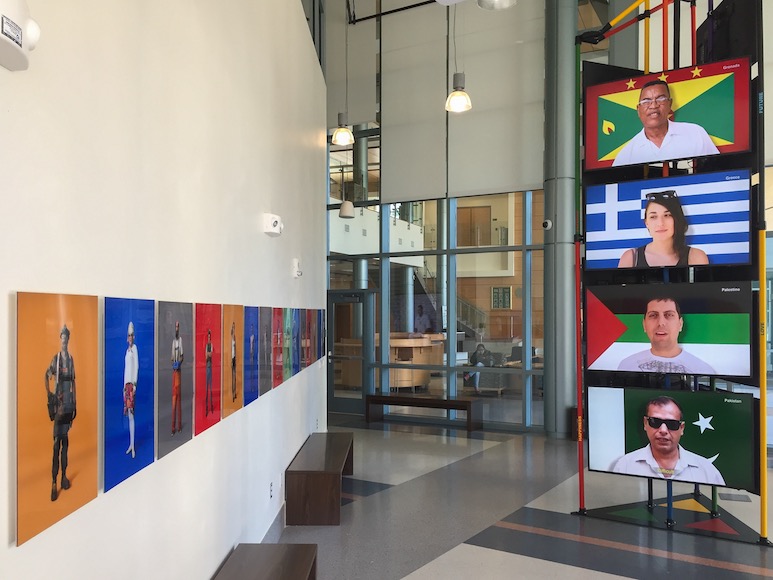
Brian Dailey at The Rachel M. Schlesinger Arts Center
Categories: artists
Tags: Brian Dailey
Nam June Paik at ARTSingapore 2008
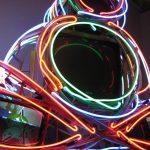
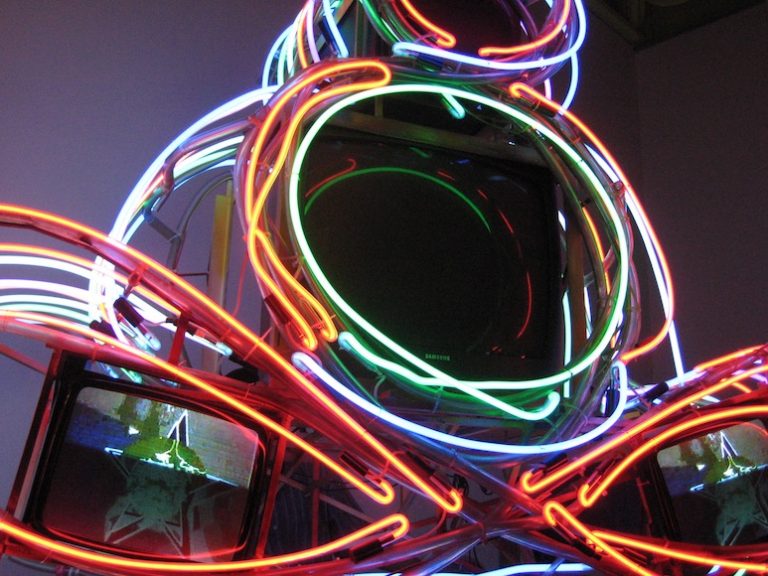
Blue Buddha
1992 – 1996
250 x 155 x 205 cm
At the invitation of ARTSingapore to organize their Special Exhibition Project for 2008 edition, ZONE: Chelsea Center for Arts organized Nam June Paik’s exhibition presenting Blue Buddha.
Nam June Paik
Blue Buddha
1992 – 1996
250 x 155 x 205 cm
Courtesy of the Kim Soo Keong Collection
ARTSingapore 2008 Special Exhibition, “Nam June Paik: An Intimate Retrospective from the Kim Soo Keong Collection”.
ARTSingapore 2008
October 9 – 13, 2008
Suntec Singapore, International Convention and Exhibition Center
Related:
Categories: exhibitions
Tags: Nam June Paik
BRIAN DAILEY: WORDS: A Global Conversation
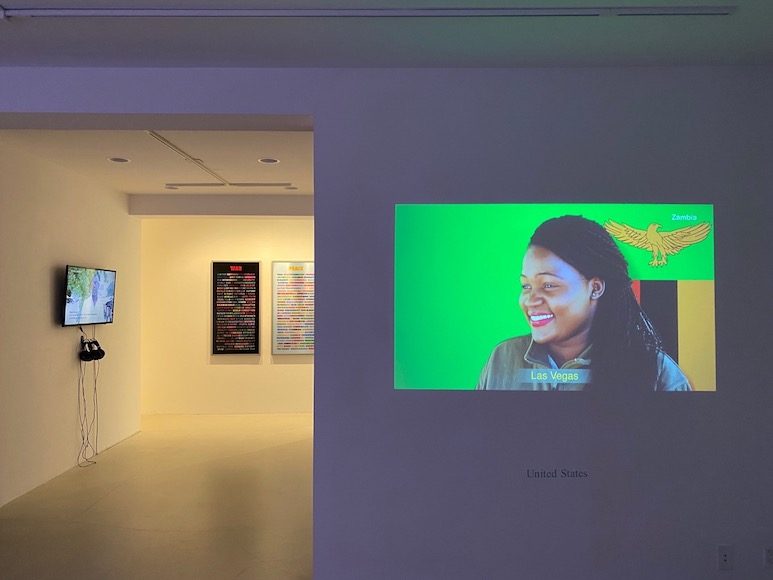
WORDS: A Global Conversation
Installation view
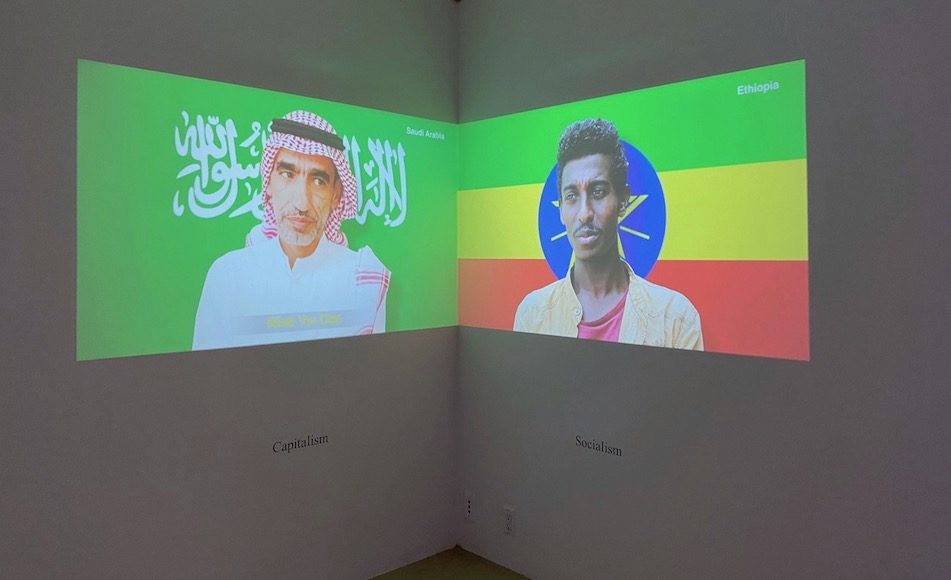
WORDS
2012-2019
A time based multi media installation single channel video with sound
Installation view
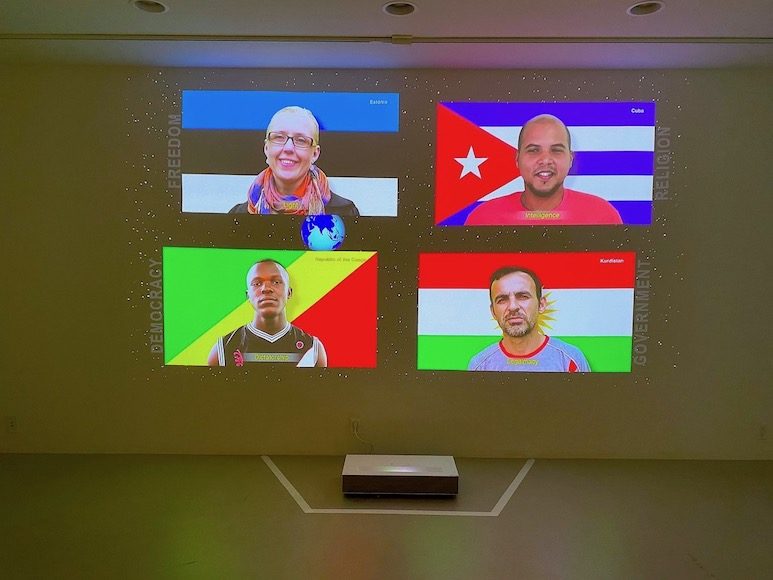
WORDS
2012-2019
A time based multi media installation single channel video with sound
Installation view
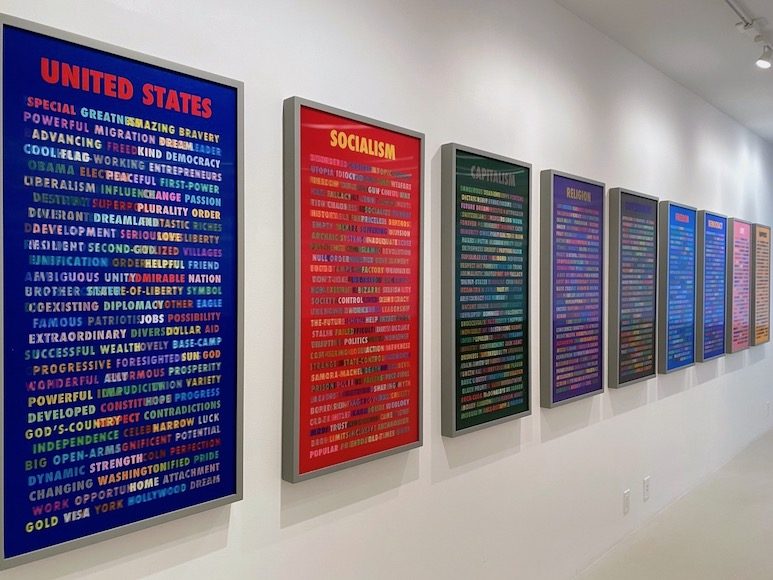
WORDS ON WORDS
2019
Lenticular Print
24 x 48 inches (61 x 122 cm)
Edition of 25 plus 5 AP’s
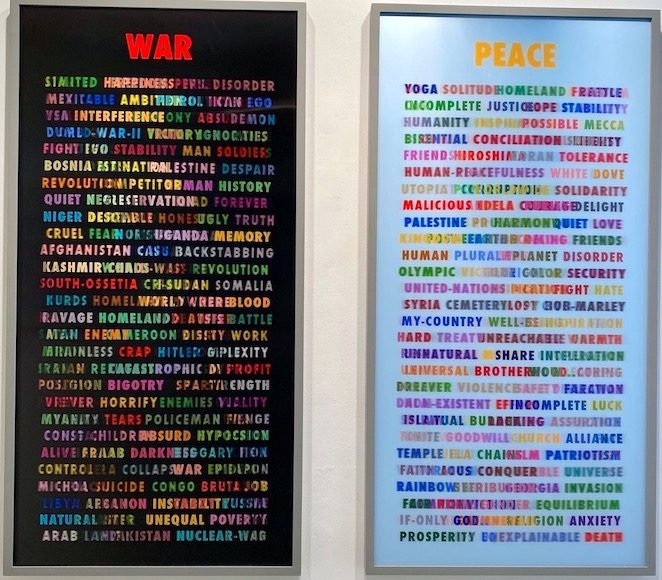
WORDS ON WORDS
2019
Lenticular Print
24 x 48 inches (61 x 122 cm)
Edition of 25 plus 5 AP’s
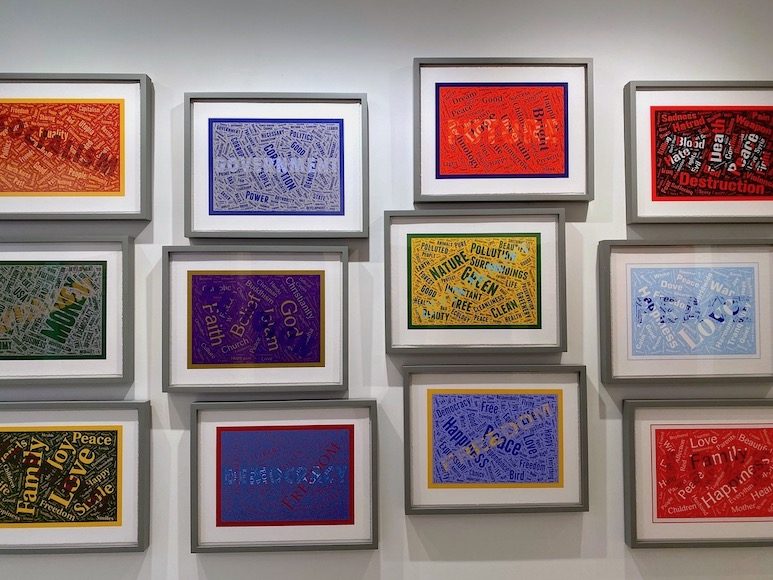
Tous les Mots
2018
Inkjet on museum etching paper 13 solos each unique
18 x 22 in. (46 x 58.5 cm)
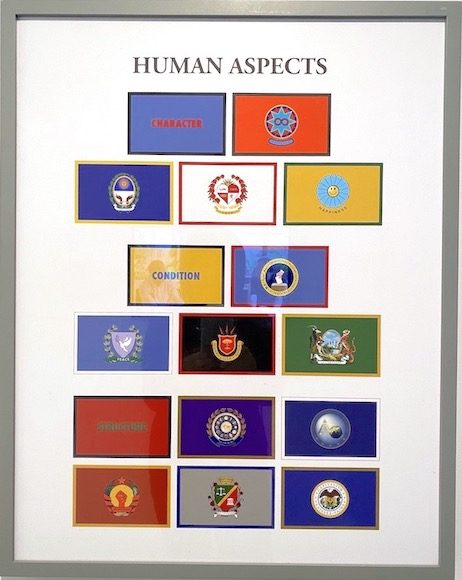
WORDS: Human Aspects
2018
A project taxonomy with artist illustrated pennons Inkjet on museum etching paper
29 x 23 in (73.66 x 58.42 cm)
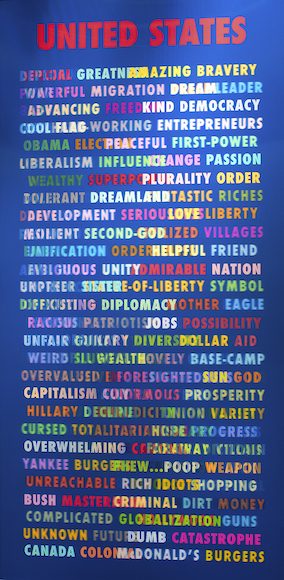
WORDS ON WORDS
2019
Lenticular Print
24 x 48 inches (61 x 122 cm)
Edition of 25 plus 5 AP’s
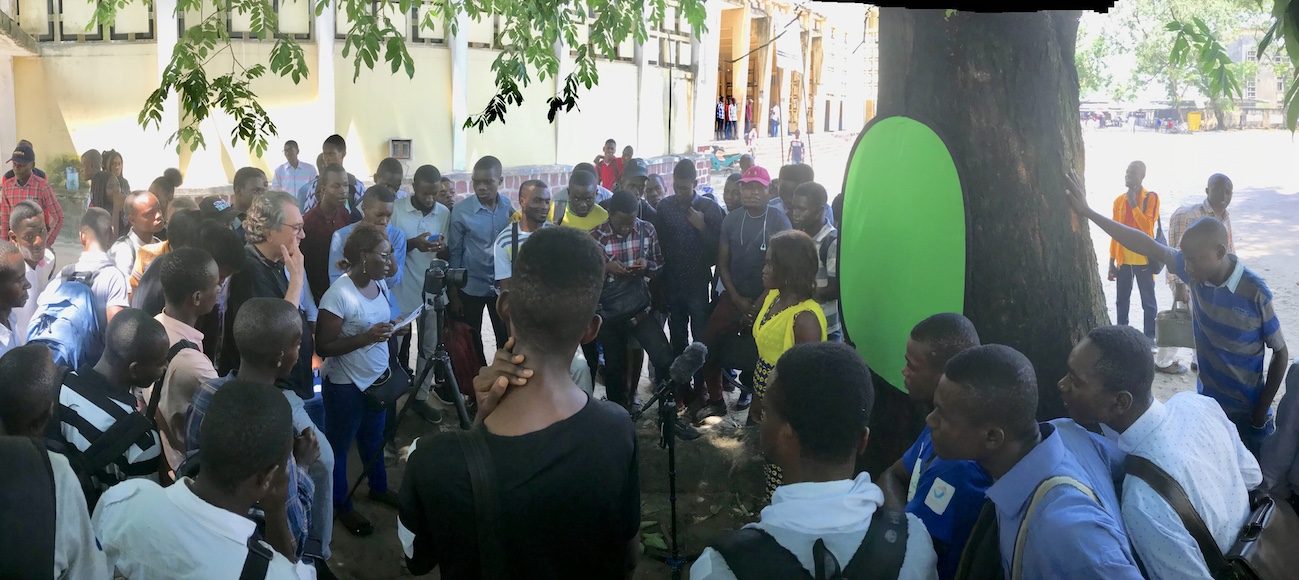
WORDS: Brazzaville, Congo, April 2019
2020
Inkjet prints
dimension varies

WORDS: Russia- War Victory
2012-2019
Dimension varies

WORDS: Tunisia-Unjust
2012-2019
Dimension varies
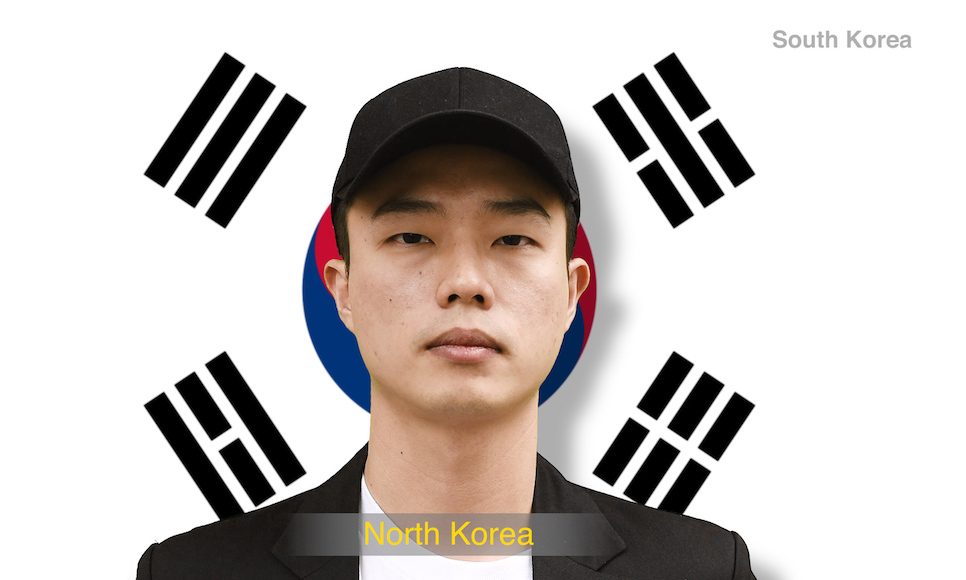
WORDS: South Korea-North Korea
2012-2019
Dimension varies
Baahng Gallery is pleased to present WORDS: A Global Conversation, Brian Dailey’s creative summation of 7-year odyssey (2012-2019) that took him to 120 countries. Working in an international geopolitical landscape undergoing tumultuous and historic changes over the evolution of this project, Dailey visited public and private venues on all 7 continents. The exhibition is the inauguralof the project in its entirety and showcases WORDS MULTIMEDIA installation and WORDS ON WORDS, a 13 lenticular- print series. This exhibition is Dailey’s second solo show with the gallery and will run from February 11 thru March 17, 2020, accompanied with opening reception on Tuesday, February 11, 6-8pm, and Artist Talk on March 3, Tuesday, 5:30pm.
WORDS is the artist’s investigation into the impact of globalization and its effect on key human structures of language, society, culture, and environment.In each country, Dailey set up his camera with green-screen backdrop and invited random individuals. Participants were asked 13 words in their native languages: peace, war, love, environment, freedom, religion, democracy, government, happiness, socialism, capitalism, future, and United States. Each person responded—in a single word—with a first impression andselected a background flag reflecting his or her societal allegiance. WORDS MULTIMEDIA is a time-based artand engages the viewers in present day issues while invoking a communal sense among global citizens. In WORDS on WORDS, distinct single-word responses are layered in an immeasurable array of colors enhanced by the lenticular 3D effect. Interjecting his voice in a collaborative manner with the project’s participants, Dailey creates iconoclastic yet playful statements reminiscent of Dada and Surrealist word play.
Born 1951 in California, Brian Dailey earned MFA from Otis Art Institute in 1975 and Ph.D. from University of Southern California in 1987 and participated in the pioneering creative experimentation defining the prolific artistic milieu in California in this era. His early career launched him on a path that—before his full circle back to his arts in 2008—took him through a twenty-year interlude working on arms control and international security. These unusual experiences were a fertile source of inspiration in his idiosyncratic art practice. With dual citizenship of USA and New Zealand, He lives and works in the Washington D.C. and in Woodstock, Virginia. His selected solo exhibitions include at Katzen Arts Center, American University Museum in Washington D.C., in 2018 and his mid-career retrospective at Bulgaria’s National Art Gallery in Sofia in 2014. The evocative videoJIKAI was screened on multiple synchronized monitors in New York City in February, 2014, as the featured video in the Times Square Midnight Moment series; a project of ART PRODUCTION FUND. Brian Dailey is represented by Baahng Gallery.
Brian Dailey
WORDS: A Global Conversation
A solo exhibition by Brian Dailey
February 11 – March 17, 2020
Opening reception
6-8PM, Tuesday February 11, 2020
Artist Talk:
5:30PM, Tuesday March 3, 2020
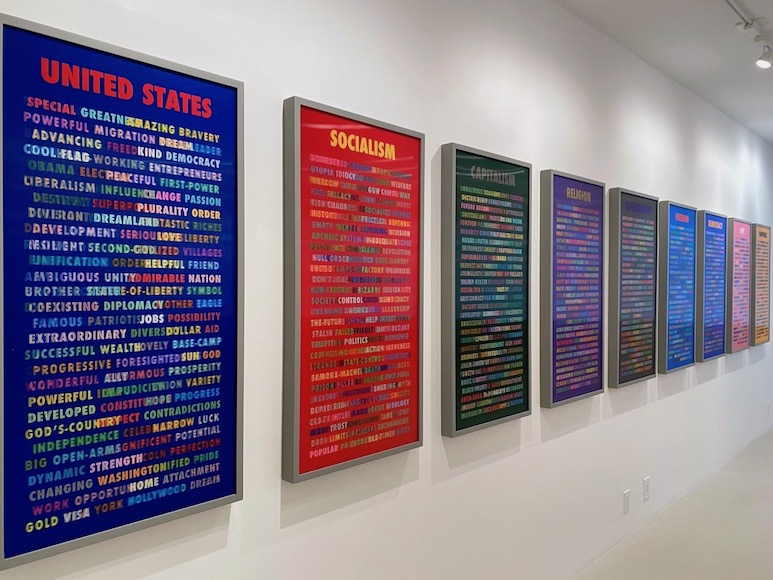
WORDS on WORDS, 2019
Set of 13, Solos, Lenticular Prints 20 x 40 in, 24 x 48 in
50.8 x 101.6 cm, 70 x 122 cm edition of 25 plus 5AP’s each unique
WORDS on WORDS, a print series of the project, comprises 13 lenticular works. Distinct single-word responses derived from the answers of the more than 3000 participants in the project are layered throughout the panels in an immeasurable array of colors enhanced by the 3D effect. Interjecting his voice in a collaborative manner with the project’s participants from 134 countries, the artist combined these individual answers into two- or three-word phrases to create iconoclastic yet playful statements reminiscent of Dada and Surrealist word play.
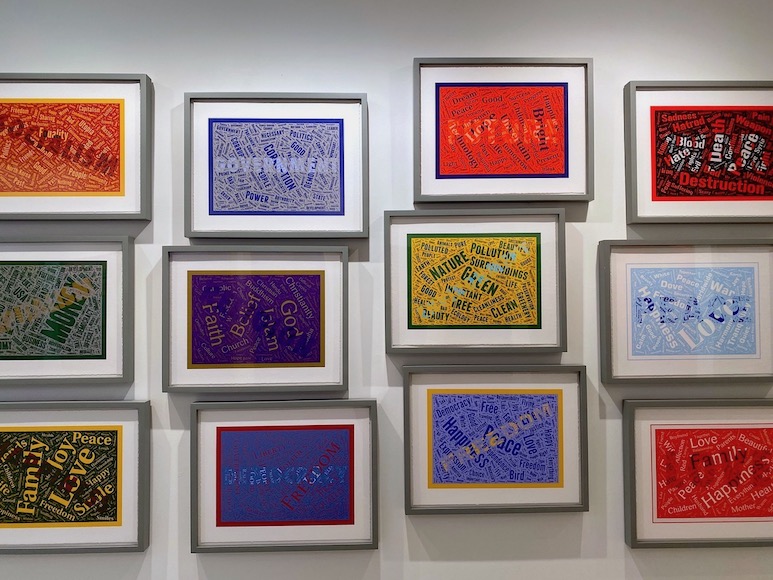
Tous les Mots, 2018
Inkjet on museum etching paper 13 solos each unique
18 x 22 in
46 x 58.5 cm
edition of 25 plus 5AP’s
Tous les Mots, is a play on the French expression tous les monde, which in its most literal sense translates as all the people in the world. By interjecting the French word for words—mots—it creates a double entendre highlighting both the global and individual voice of the project. The series encapsulates the very essence of this series in that every word uttered by the nearly 3,000 participants is represented in one of the prints corresponding to each of the thirteen words. This print series gives voice to each and every individual who engaged in the WORDS endeavor, the various responses were calibrated and scaled to reflect the frequency in which they were articulated – forming dynamic word clouds.
Related:

Brian Dailey at The Rachel M. Schlesinger Arts Center
Categories: exhibitions
Tags: Brian Dailey
BRIAN DAILEY: Polytropos
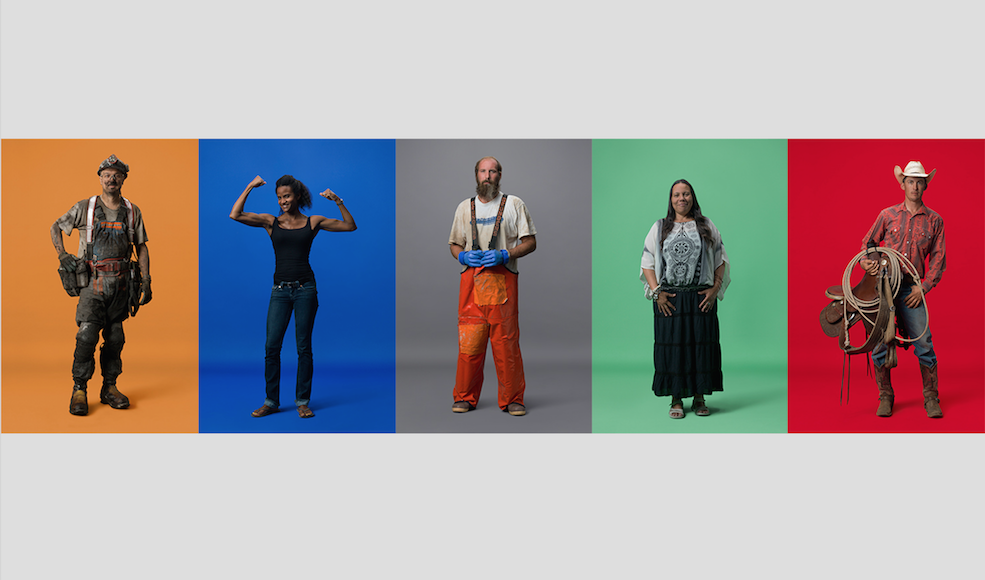
America in Color
2013
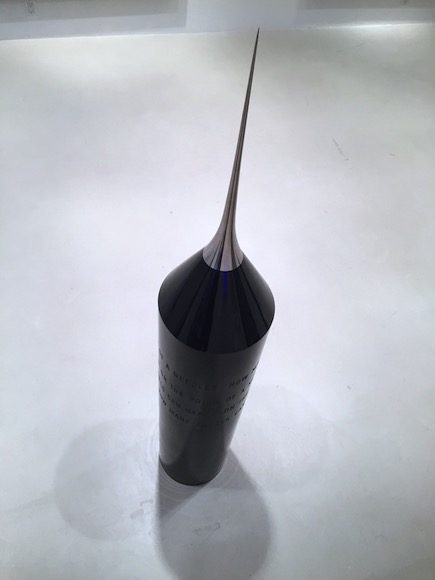
Lamentations:How Many Angels Can Dance on the Point of a Needle?
Installation view
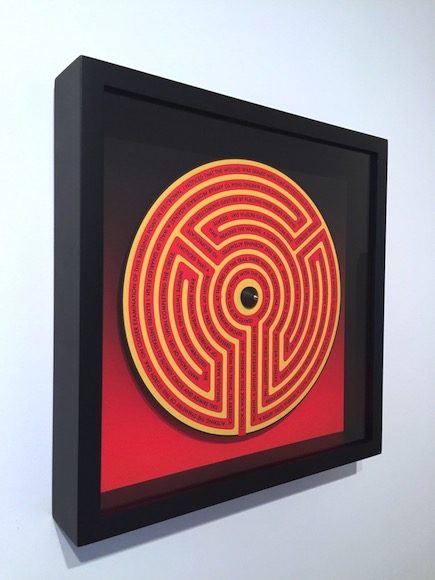
A Note to Paula
Installation view
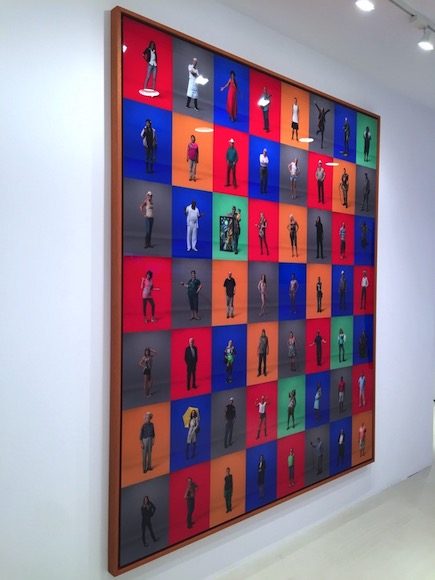
America in Color, Matrix
Installation view
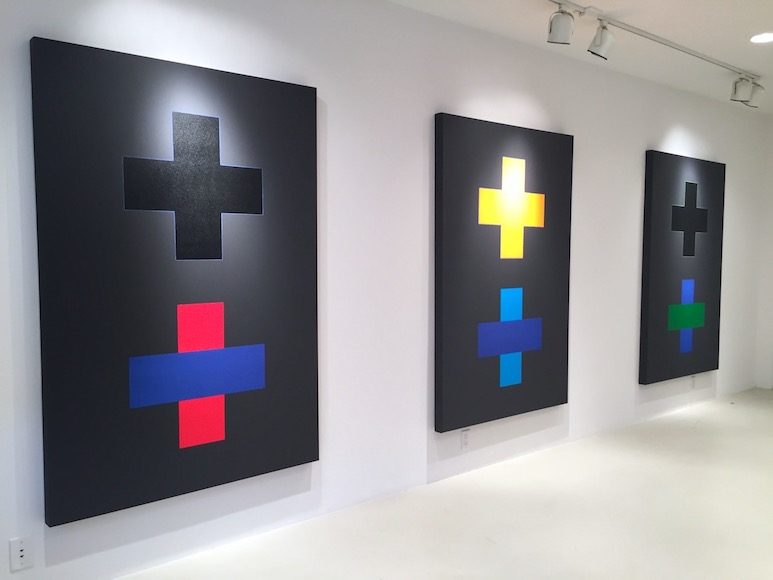
installation view
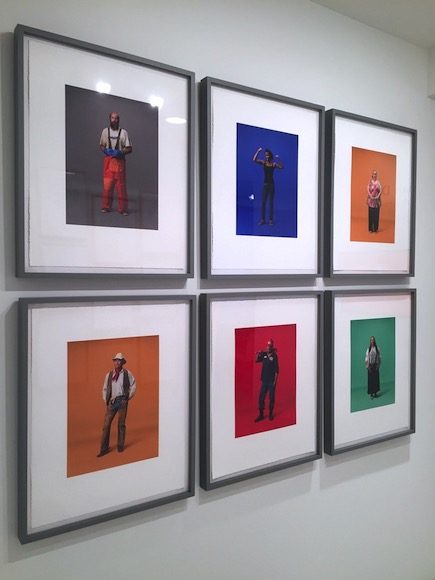
America in Color
Installation view
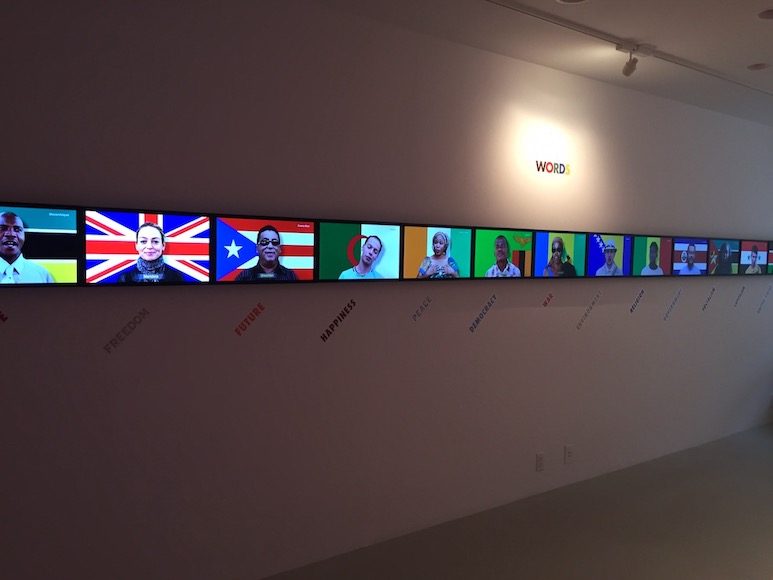
WORDS
Installation view
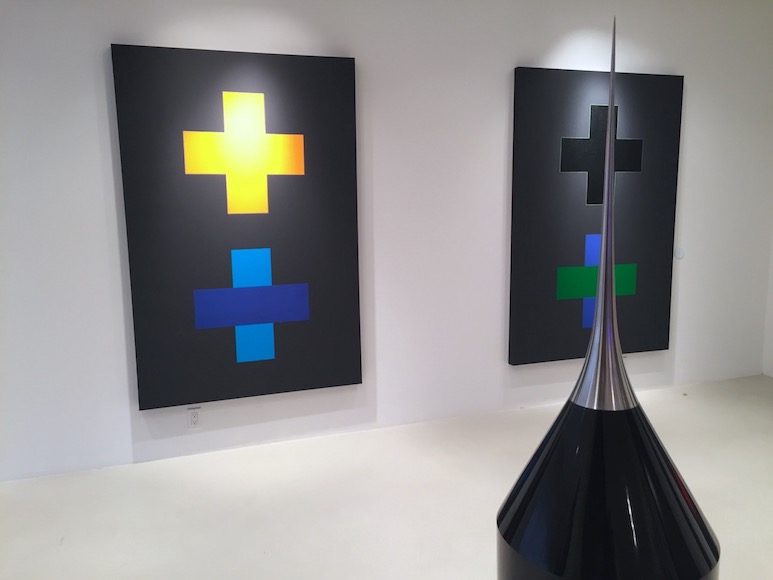
installation view
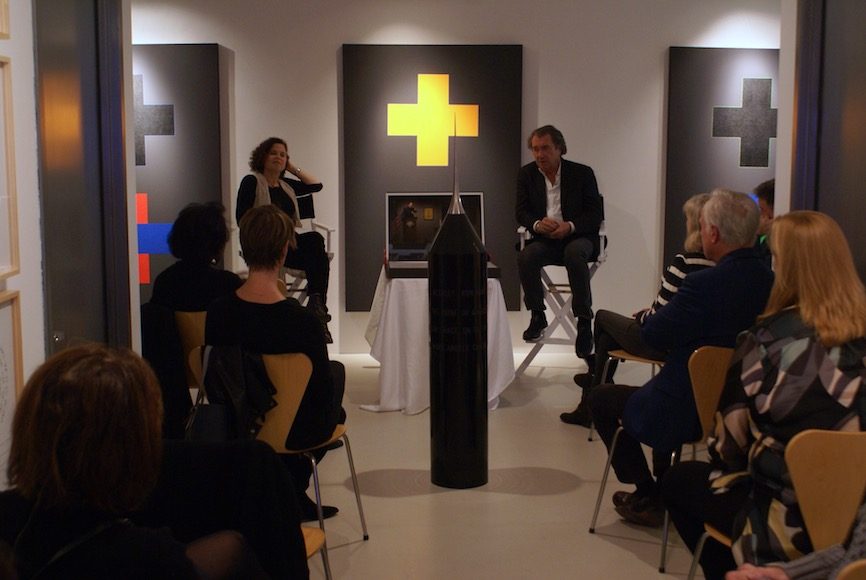
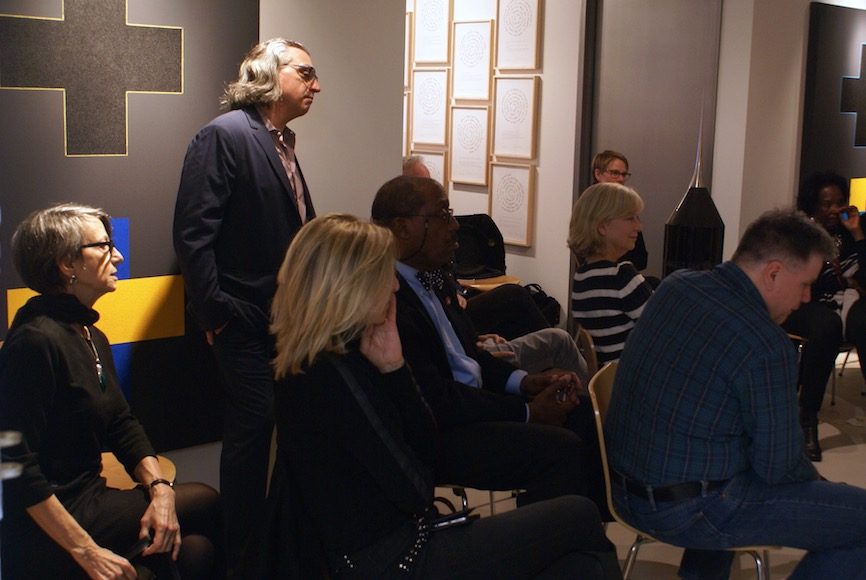
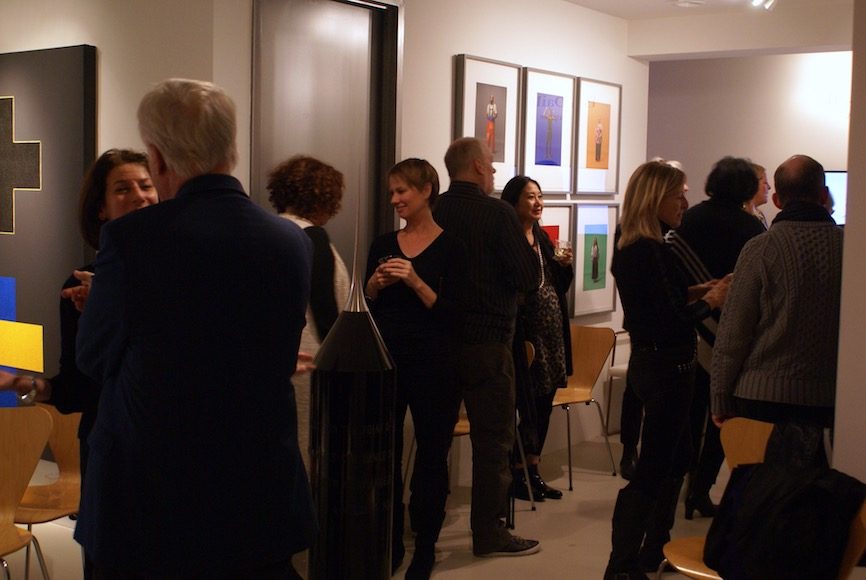
Baahng Gallery is pleased to announce representation of Brian Dailey and the presentation of his first solo exhibition in the gallery, Polytropos. The exhibition features selected works from 2010 to 2018 and debuts to a New York audience his most recent monumental project WORDS, an expansive global video installation engaging with issues of language and identity under globalization.
Based in Washington D.C., Dailey is an artist whose work in a range of media, including photography, film, installations, and painting, draws on his unconventional evolution as an artist and reflects pressing concerns of our times. His conceptual and performance based art expands the parameters in which he works, defying easy categorization
.
Perhaps no word better characterizes Dailey than polytropos, the first adjective Homer applies to Odysseus in The Odyssey. Translated from the Greek as well traveled, much wandering, and, in a more metaphorical sense, as the man of many twists and turns, polytropos suitably describes Dailey’s life journey. His many peregrinations have taken him from his art studies and career in Los Angeles in the 1970s to a twenty-year interlude working on arms control and international security, ultimately bringing him full circle back to his roots as an artist. These unusual experiences, which he approached with the same curiosity that has driven his art, provide a fertile source of inspiration in his idiosyncratic creative practice.
Dailey’s multifaceted background is reflected in works in the exhibition such as the meditative and provocative two- and three-dimensional works from his Lamentations series, a pioneering project that manifests a novel aesthetics of nuclear iconography in post-Cold War and in the elegant and vibrant canvases from his autobiographical 14 Stations at the Crossroads, an engaging series that revisits key moments in the artist’s life journey. Equally reflective of his life experiences are the radiant and intricate digital graphite drawings, Riddles, embedded with compelling multifaceted meanings. Also on view is the dynamic mosaic of photographic portraits from Dailey’s America in Color project, a color-coded time capsule of the myriad faces of the U.S. populace, situated literally and symbolically against a backdrop of the contemporary political landscape.
Brian Dailey has had solo exhibitions in Los Angeles, New York, Washington, D.C., and Bulgaria, and participated in a number of group shows in the United States, Europe, and Russia. His most recent museum exhibition, WORDS, was held at Katzen Arts Center, American University Museum in Washington D.C. in 2018, and his mid-career retrospective took place at Bulgaria’s National Art Gallery in Sofia in 2014. The evocative video Jikai–which will be on view at the gallery—was screened on multiple synchronized monitors in New York City in February, 2014, as the featured video in the Times Square Midnight Moment series; a project of ART PRODUCTION FUND.
Brian Dailey: Polytropos
A solo exhibition by Brian Dailey
November 1 – Dec 15, 2018
Opening reception
6-8PM, Thursday November 1, 2018
6PM, November 8, 2018
Related:

Brian Dailey at The Rachel M. Schlesinger Arts Center
Categories: exhibitions
Tags: Brian Dailey
RUTH KLIGMAN
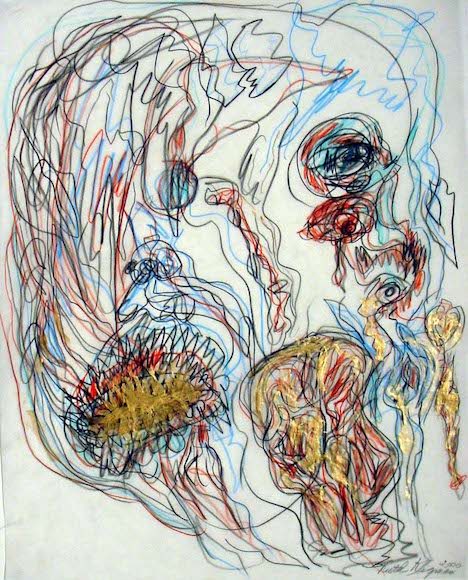
Demon: Beginning, 2000
Color pencil and metallic acrylic on onion skin paper
18 x 24 in.
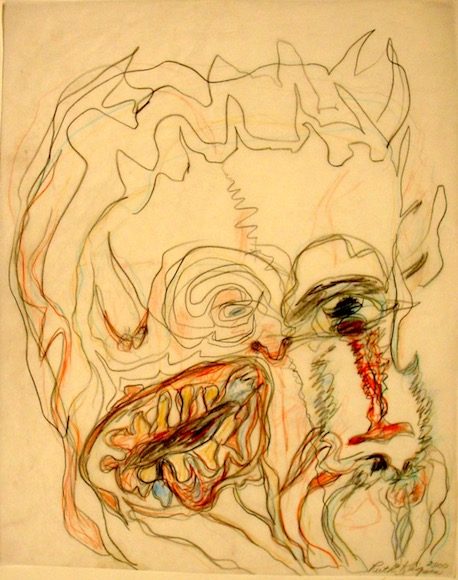
Demon I, 2000
Color pencil and metallic acrylic on onion skin paper
18 x 24 in.
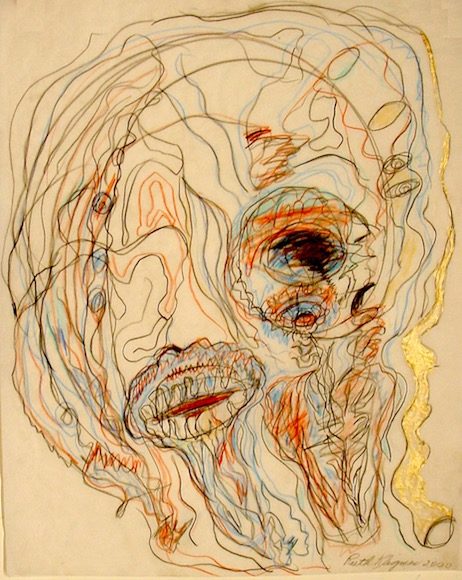
Demon Disintegration I, 2000
Color pencil and metallic acrylic on onion skin paper
18 x 24 in.
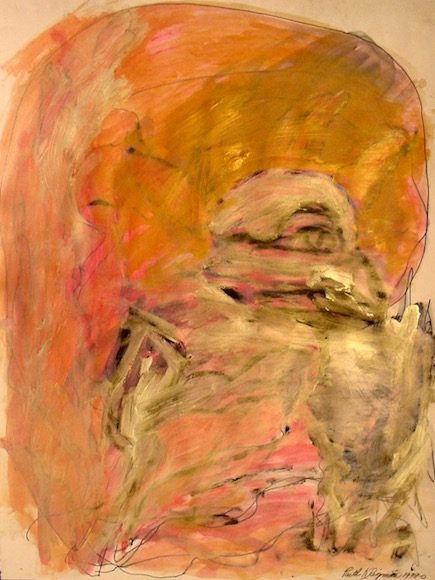
Demon: Horus II, 2000
Metallic acrylic on paper
18 x 24 in.
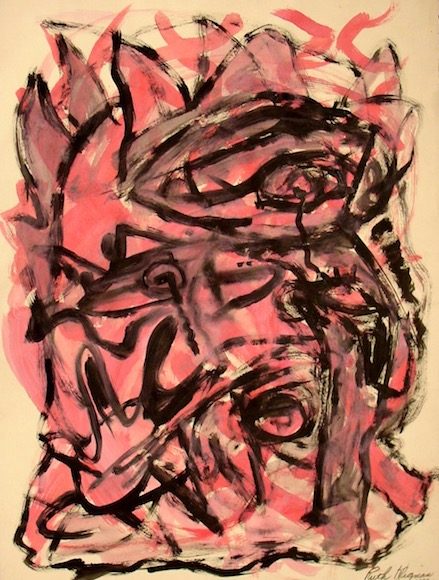
Demon: Horus I, 2000
Metallic acrylic on paper
18 x 24 in.
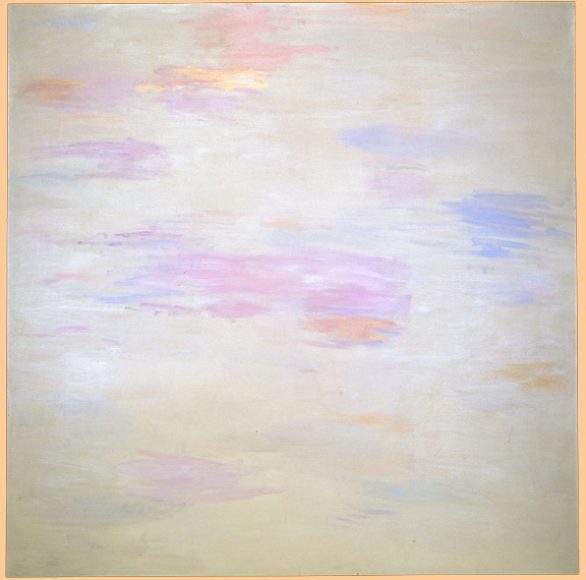
Landscape of the sky: June, 2002
Acrylic on canvas
72 x 72 in.
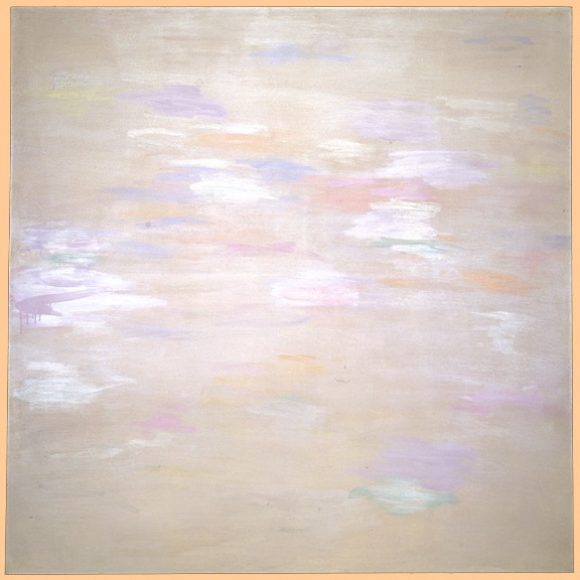
Landscape of the sky: September, 2002
Acrylic on canvas
72 x 72 in.
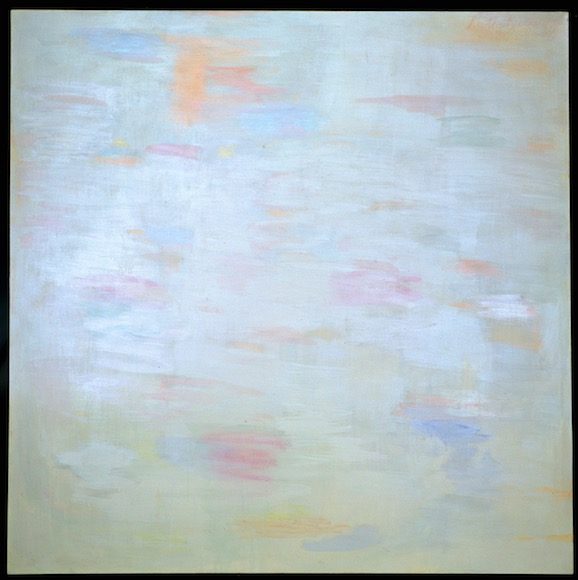
Landscape of the sky: August, 2001
Acrylic on canvas
72 x 72 in.
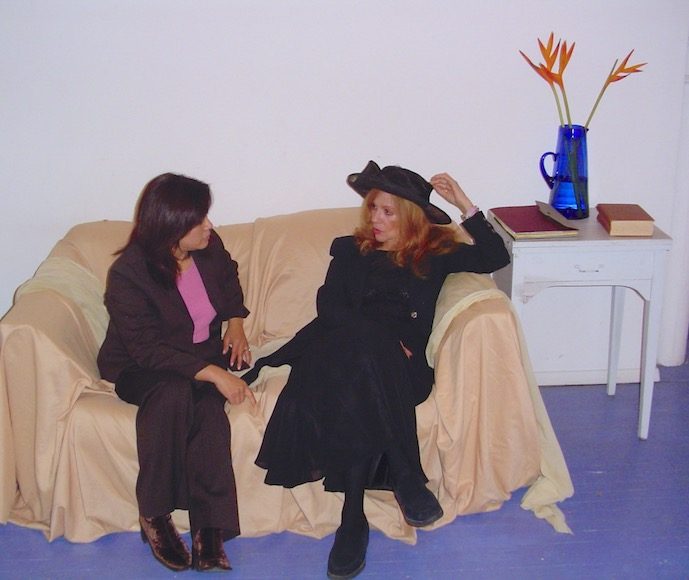
RUTH KLIGMAN
EDUCATION:
Studied painting and Art History at the New School for Social Research, New York University and Yale. Studied with Larry Rivers, Gregorio Prestopino, Abraham Rattner, Reginald Marsh and Willem De Kooning.
SELECTED EXHIBITIONS:
SOLO EXHIBITIONS
2005 “DEMONS • THE LIGHT”, ZONE: Chelsea Center for the Arts, New York
1988 New York Studio Show, sponsored by Sur Rodney Sur
1987 Otis Gallery, London, England
1986 M. Donahue Gallery, New York, New York
1984 “Pier Show”, Brooklyn, New York
1983 Pier 34, New York, New York
P.S 1, New York, New York
1966 Ivan Spence Gallery, Ibiza, Spain
1964 Gallery International, New York, New York
1962 Thibaut Gallery, New York, New York
1959 March Gallery, New York, New York
Tangier Gallery, New York, New York
GROUP EXHIBITIONS
1989-90 Spencer Throckmorton Gallery, Santa Fe, New Mexico
1987 Wessel O’Connor Gallery, Rome, Italy
Christies Gallery, London, England
369 Gallery, Edinburgh, Scotland
Richard DeMarco Gallery, Edinburgh, Scotland
1986 Minneapolis Museum of Art, Minneapolis, Minnesota
1985 Kamikazi Gallery, New York, New York
Neo Persona Gallery, New York, New York
1984 Shuttle Gallery, New York, New York
1967 Museum of Modern Art, New York, New York
1958 Martha Jackson Gallery, New York, New York
DEMONS • THE LIGHT
January 20 – March 25, 2005
Categories: artists
Tags: Ruth Kligman
JOHN CAGE
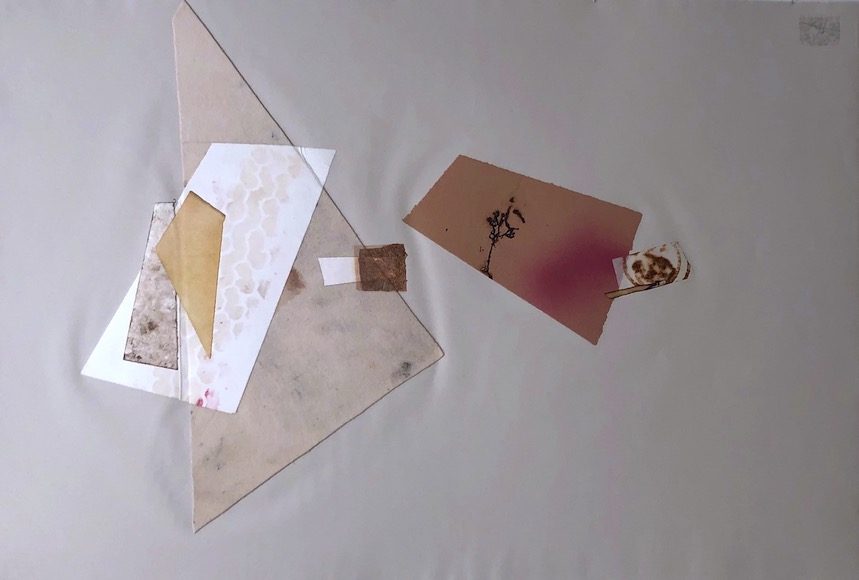
Mesostics: Earth, Air, Fire, Water, 1985
Monotype With Collage on Gray Rives Paper
44 1/10 × 29 9/10 in (112 × 76 cm)
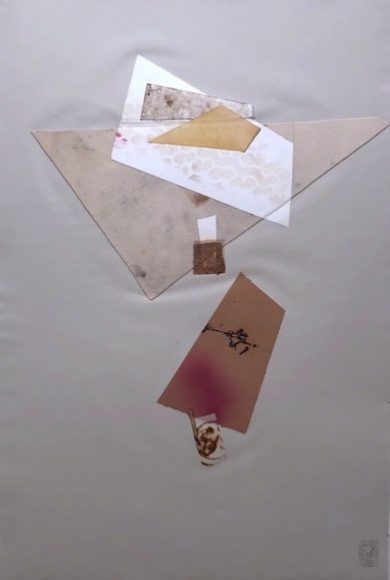
Mesostics: Earth, Air, Fire, Water, 1985
Monotype With Collage on Gray Rives Paper
44 1/10 × 29 9/10 in (112 × 76 cm)
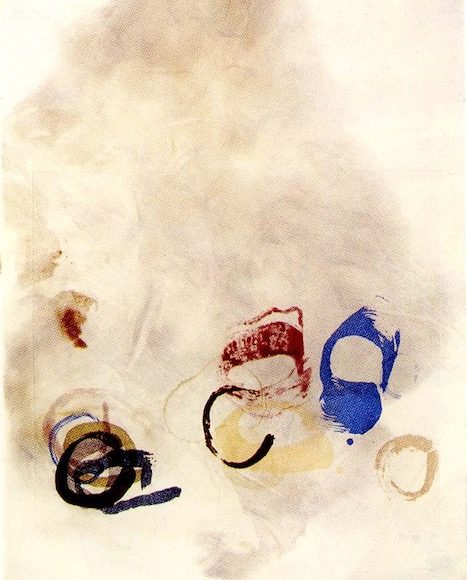
10 stones, 1989
Color spit bite and sugar lift aquatints on smoked paper
19 x 23 in.
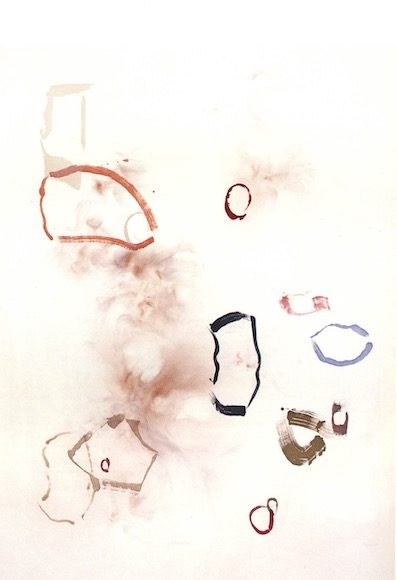
Missing stone, 1989
Set of 2 color spit bite aquatints with sugar loft aquatint on smoked paper
54 x 41 in.
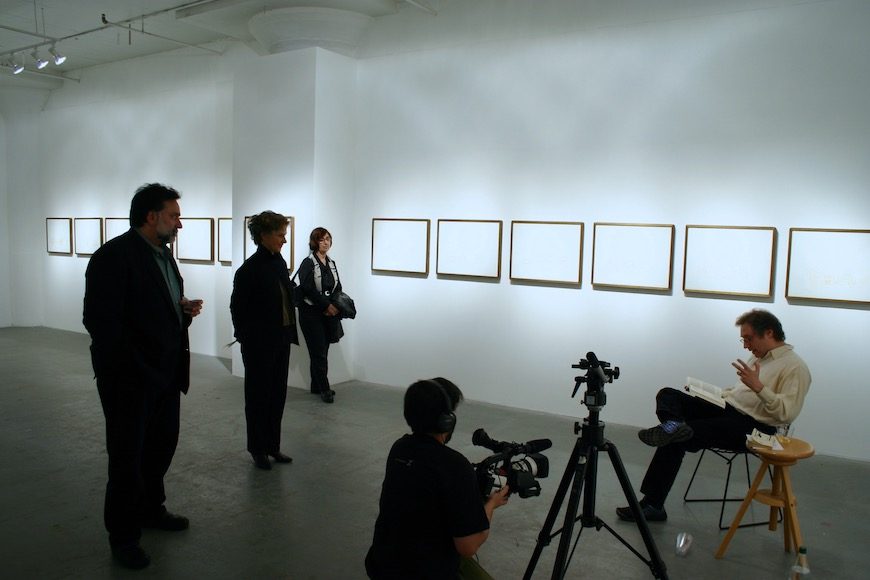
Opening, Talks and Readings
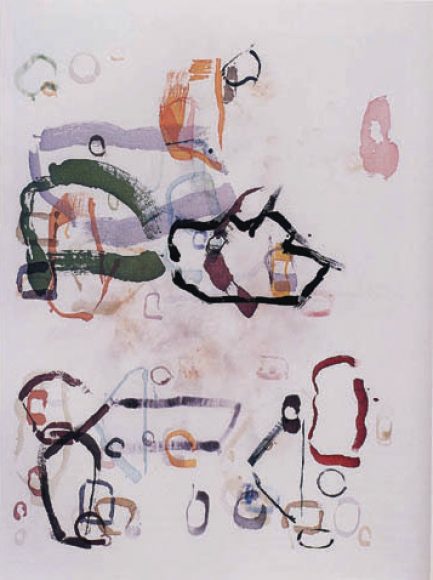
75 Stones, 1989
Color spit bite aquatints with sugar lift aquatint on smoked paper
54 x 41 in.
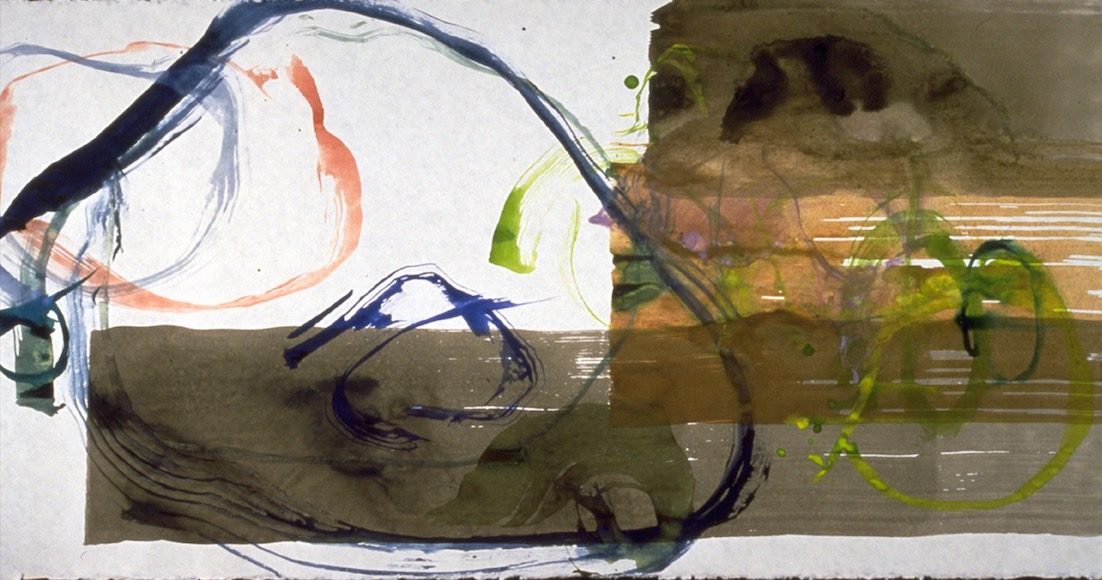
River Rocks and Smoke 4/11/90, 1990
Water color on paper prepared with smoke
28 x 42 in. (70 x 101 cm)
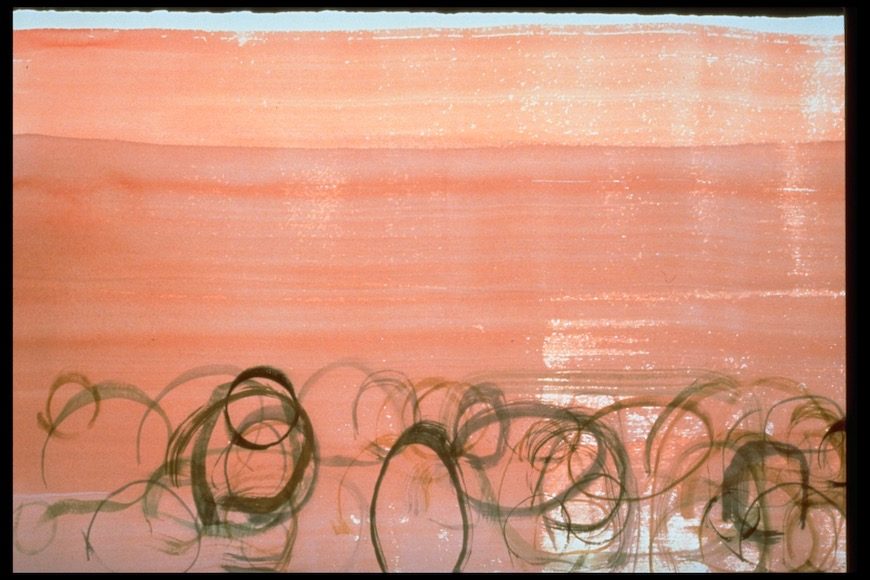
New River Watercolor, SeriesIV, 1988
Watercolor on paper
26 x 40 in.
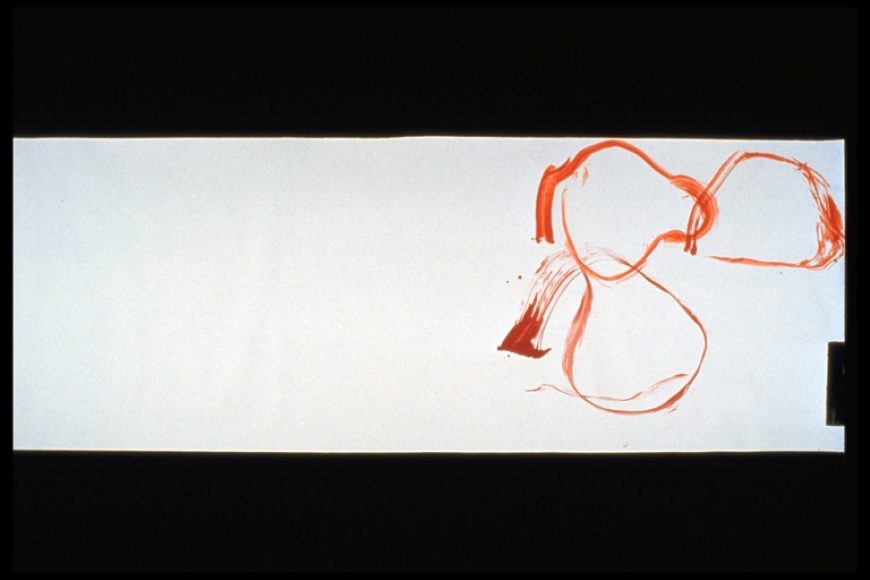
New River Watercolor, SeriesII, 1988
Watercolor on paper
26 x 40 in.
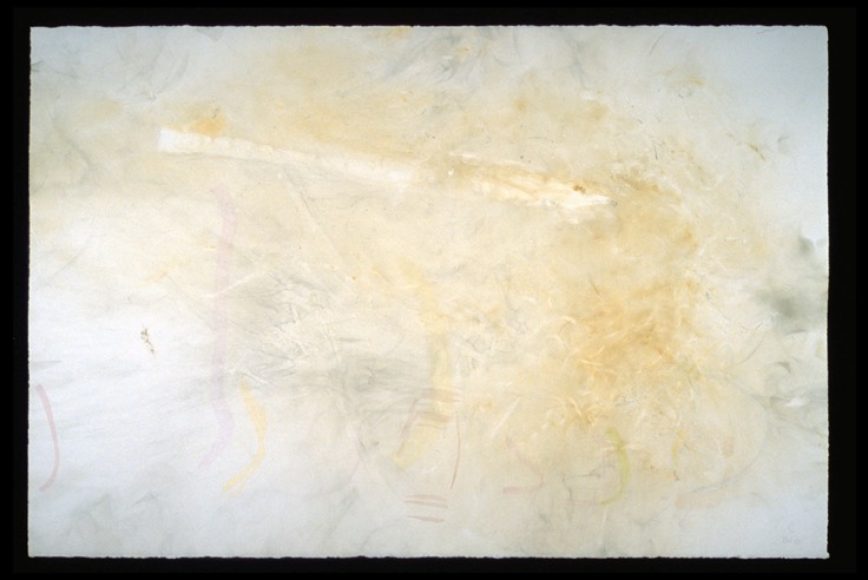
River Rocks and Smoke, 4/12/90, 1990
Water color on paper prepared with smoke
27 x 40 in.
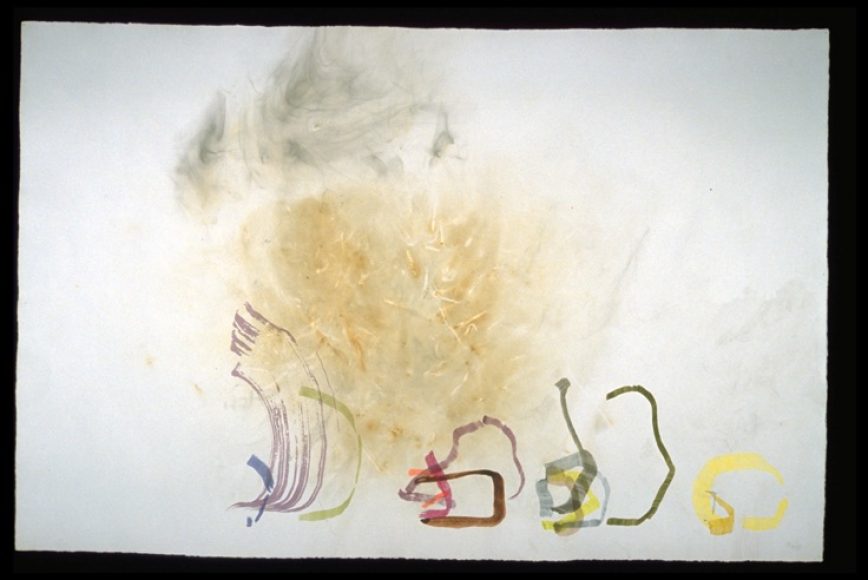
River Rocks and Smoke, 4/11/90, 1990
Water color on paper prepared with smoke
27 x 40 in.
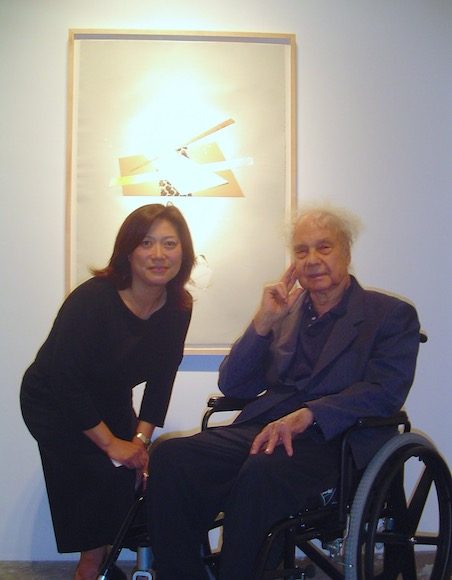
Related:
MOLLY DAVIES
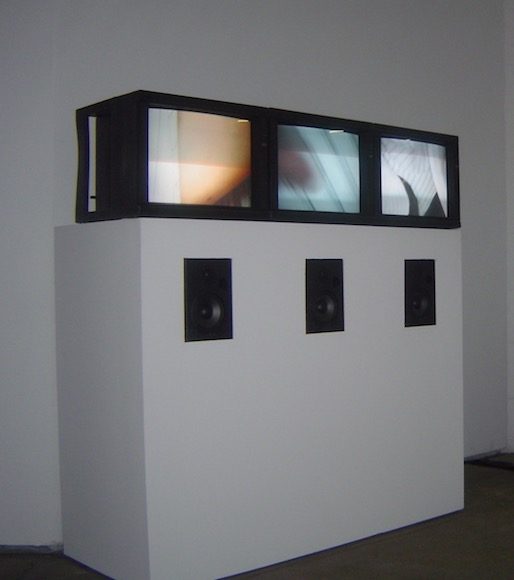
Dressing
Installation view

Desire
Video/sound installation
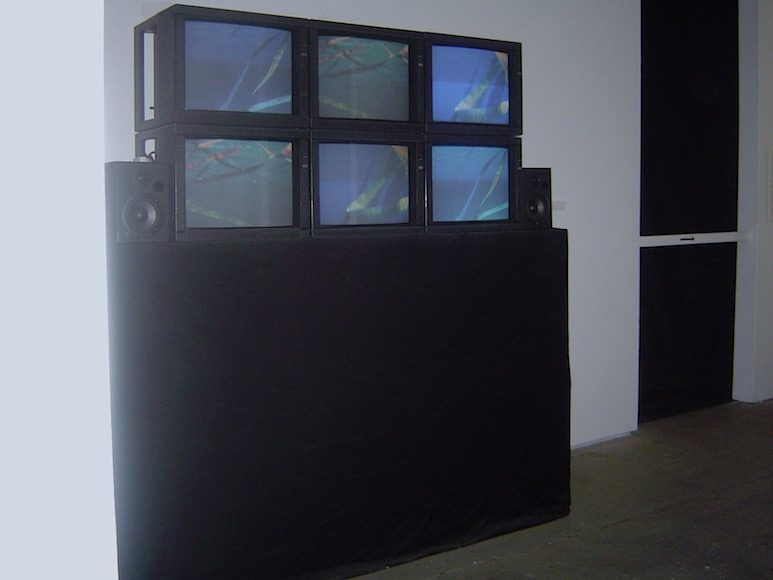
Sea Tails
Installation view
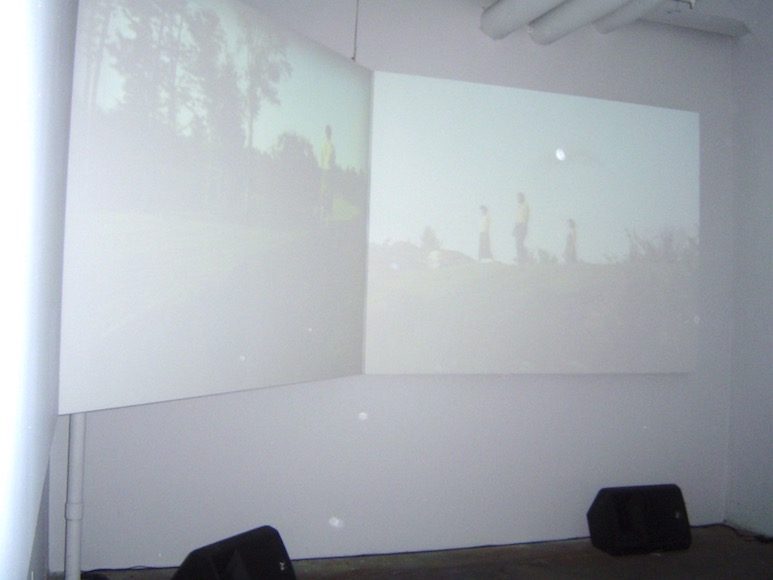
Desire
Installation view
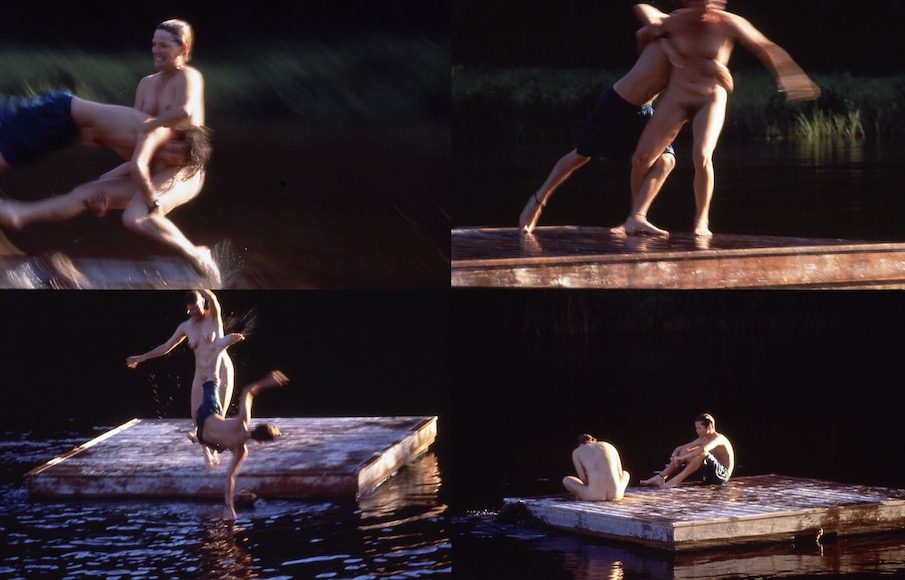
Pastime
Slide/video/sound installation
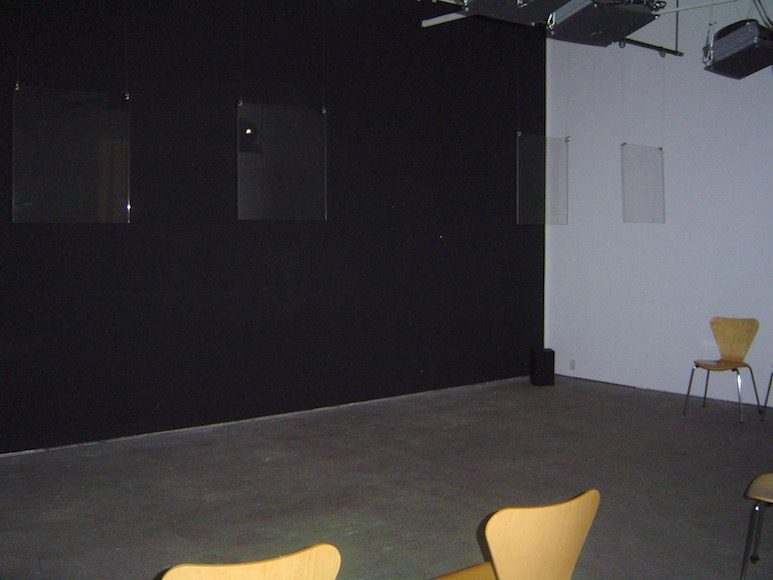
Pastime
Installation view
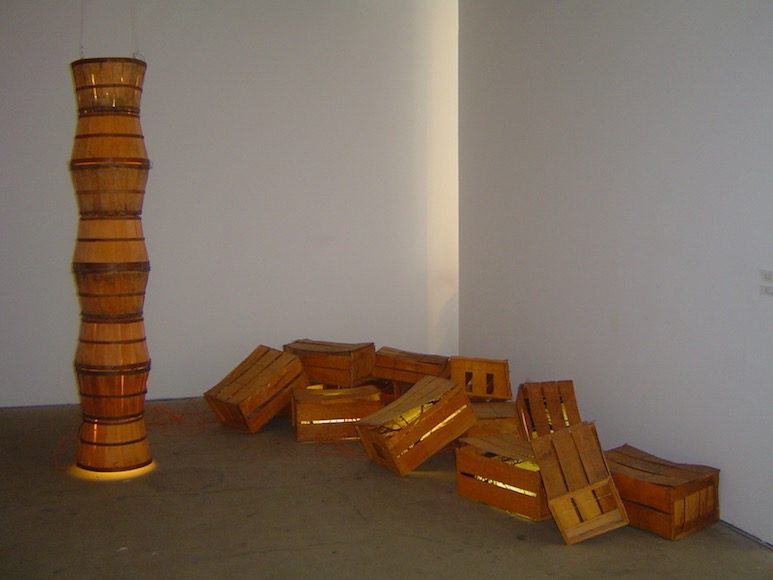
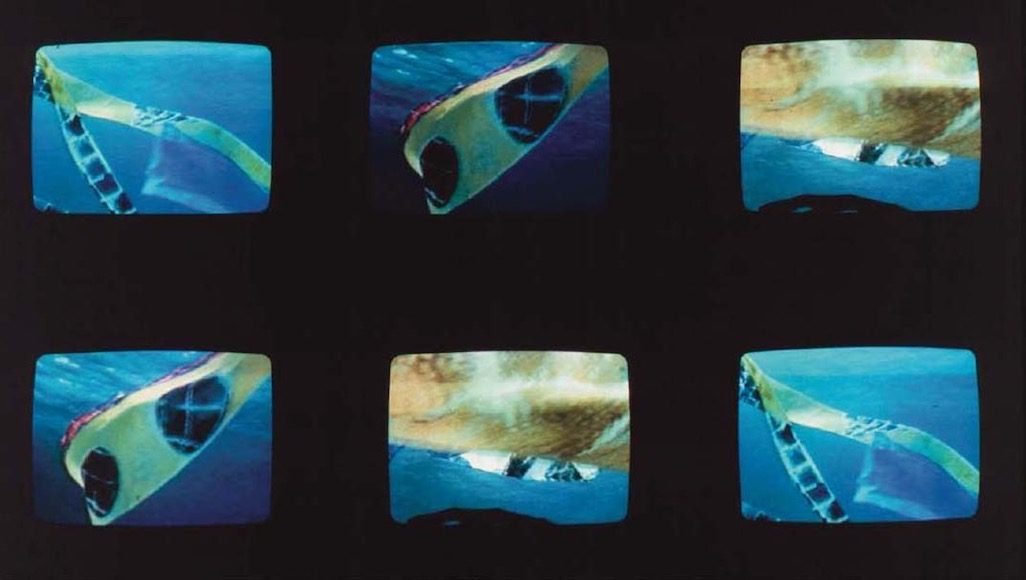
Sea Tails
Video/sound installation
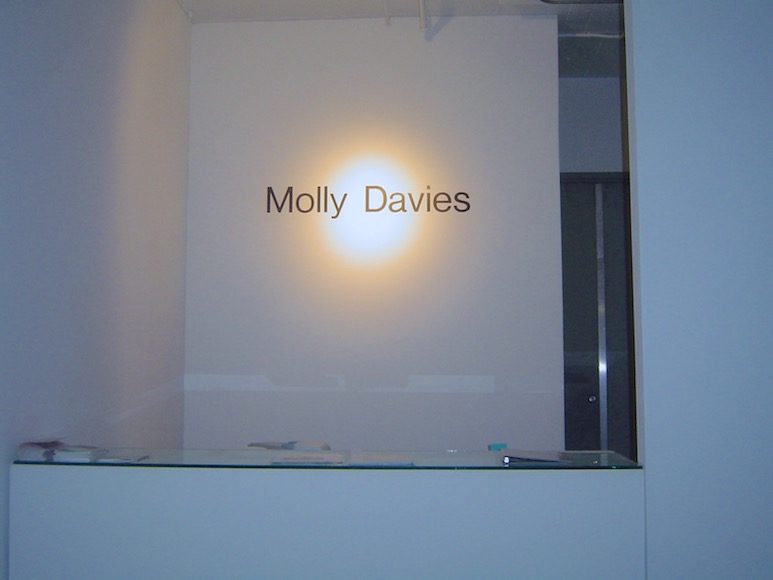
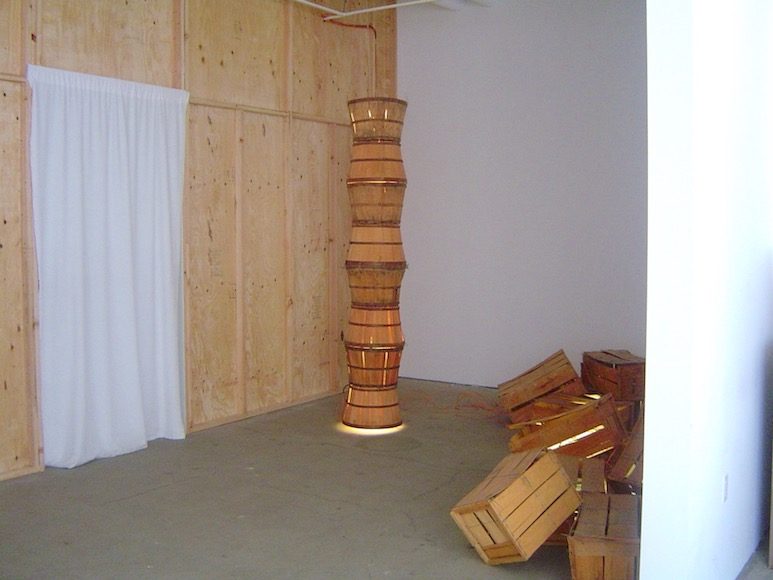
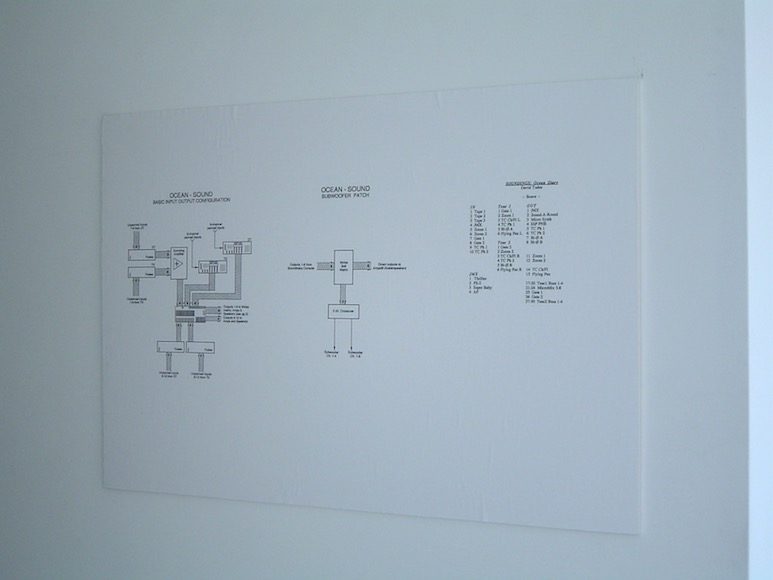
Molly Davies has been working as a film and video artist for over 30 years. For her multimedia performance pieces, she has collaborated with artists John Cage, David Tudor, Michael Nyman, Takehisa Kosugi, Lou Harrison, Alvin Curran, Fred Frith, Suzushi Hanayagi, Sage Cowles, Polly Motley, Jackie Matisse and Anne Carson. Her work has been presented at the Venice Film Festival, the Centre Pompidou, Musée de l‘Art Moderne de la Ville Paris, Musée Art Contemporain Lyon, The Getty, the Whitney Museum, the Walker Art Center, Asia Society, Theatre Am Turm, The Kitchen, Dance Theater Workshop, La MaMa Etc., Jacob’s Pillow Dance Festival, and the Indonesian Dance Festival. She teaches courses in design for inter-media performances at universities in the United States, Europe and Asia.
| Asia Society and Museum, New York, NY | TRADITIONS, INVENTIONS, AND EXCHANGE | June 28 through August 21, 2005 |
| Walker Art Center Minneapolis, MN | SPACE, TIME AND ILLUSION- ISSUES OF FILM WITH PERFORMANCE | May 11, 2005 |
| Dance Theatre Workshop New York, NY | SPACE, TIME AND ILLUSION- ISSUES OF FILM WITH PERFORMANCE | April 18 & 19, 2005 |
| Zone Chelsea, New York, NY | DISTANCE BETWEEN GESTURE AND MEANINGS | April 5 through 15, 2005 |
| Smith College, Department of Art North Hampton, MA | DRAWING FROM THE BODY Performance | March 8, 2005 |
| Getty Research Institute Exhibition Gallery Los Angeles, CA | SEA TAILS | July 13 -September 26, 2004 |
| Bates Museum of Art, Lower Gallery at Bates Dance Festival, Lewiston, ME | TRADITIONS, INVENTIONS, AND EXCHANGE | August 9 through 16, 2003 |
| 2002 Bienalle Lyon France Musee Art Contemporain Lyon | DAVID TUDOR’S OCEAN | March, 2002 |
| Texas Gallery Houston, TX | KAREN TAPES | December, 2001 |
| Block Gallery Northwestern University Evanston, IL | PASTIME | September – December, 2001 |
| Getty Museum of Art Los Angeles, CA | DAVID TUDOR’S OCEAN | May, 2001 |
| Argentinian Embassy New York City, NY | DAVID TUDOR’S OCEAN | March, 2001 |
| The New School for Social Research New York City, NY | KAREN TAPES | March 1st, 2001 |
| Tulane University New Orleans, LA | DRAWING FROM THE BODY Performance / Video Installation | February – May, 2001 |
| Mingei International Museum San Diego, CA | SEA TAILS | April – November, 2000 |
| Santa Cruz Museum of Art and History Santa Cruz, CA | MIGRATION DISLOCATION BRANCUSI’S BASKETS | July – November, 2000 |
| The Kitchen New York City, NY | MARGUERITE Summer Residence with Polly Motley | June, 2000 |
| Selby Gallery Sarasota, Florida | “PLUGGED IN” Installations of: DRESSING DISLOCATION BRANCUSI’S BASKETS | March – April, 2000 |
| Mousonturm Frankfurt A/M, Germany | DRAWING FROM THE BODY Performance/ Video Installation | August 24,25, 1999 |
| Flynn Theater Stowe, Vermont | a | June – July, 1999 |
| Jack Tilton Gallery New York, NY | DRAWING FROM THE BODY Performance/Video Installation | February 24, 1999 |
| The Galleries at Moore Philadelphia, PA | SEA TAILS | January 22-March 14, 1999 |
| Jack Tilton Gallery New York, NY | DRAWING FROM THE BODY Performance/ Video Installation | December 10, 1998 |
| Walker Arts Center Minneapolis, MN | DAVID TUDOR’S OCEAN Video Installation | June 28- Sept 21, 1998 |
| Deutschlandfunk Redaktion E-Musik Köln, Germany | DAVID TUDOR’S OCEAN Video Installation | March, 1998 |
| The Kitchen New York, NY | DAVID TUDOR’S OCEAN Video Installation | Oct 30 – Nov 26, 1997 |
| Dancespace New York, NY | IN THE MANNER OF EDWARD HOPPER | October, 1996 |
| Judson Memorial Church New York, NY | DAVID TUDOR’S OCEAN Video Installation | September 17, 1996 |
| Naropa Institute Boulder, CO | BROWNIEFAX | January, 1996 |
| Kitchen Center for Video and Music New York, NY | YOU CAN SING ANY TIME | April, 1995 |
| University of Colorado Boulder, CO | YOU CAN SING ANY TIME | March, 1995 |
| Jacob’s Pillow Dance Festival Lee, MA | FOLK DANCE YOU CAN SING ANYTIME | August, 1994 |
| Movement Research New York, NY | WAITING | December, 1993 |
| Dance Theatre Workshop New York, NY | FOLK DANCE | September, 1993 |
| Naropa Institute Boulder, CO | SUPERFICIAL DISSOLVE | May, 1993 |
| University of Colorado Boulder, CO | DE CHIRICO’S DAUGHTER PART II | May, 1992 |
| Naropa Institute Boulder, Co | DE CHIRICO’S DAUGHTER PART I | February, 1992 |
| Justus Liebig University Giessen, Germany | REICHE OHNE SINNE PROJECT | January – February, 1991 |
| University of Colorado Boulder, CO | COLLABORATION WITH POLLY MOTLEY | April, 1991 |
| Heiner Müller Project Frankfurt, Germany | “BILDBESCHREIBUNG” | April, 1990 |
| La Mama E.T.C. New York, NY | MANA GOES TO THE MOON | January 9-27, 1990 |
| Theatre am Turm Frankfurt, Germany | ARRIVALS AND DEPARTURES | April 20 – 24, 1988 |
| Tampere Theater Festival Finland | ARRIVALS AND DEPARTURES | August 15-16 1988 |
| La Mama E.T.C. New York, NY | ARRIVALS AND DEPARTURES | May 5-29, 1988 |
| Whitney Museum of American Art at Phillip Morris New York City, NY | SEA TAILS | September 17, 1986 |
| The Albuerque Museum of Art, History and Science Albuquerque, New Mexico | SAGE CYCLE Part III SMALL CIRCLES GREAT PLAINS | June 22, 1985 |
| Theatre Am Turm Frankfurt, Germany | ATEM | June 6, 1985 |
| Centre Georges Pompidou Paris, France | Comissionedwork from TAT PALM AT THE END OF THE MIND PREPARING THE GROUND | May 24-26, 1985 |
| Theater am Turm Frankfurt, Germany | Commissioned work from TAT PREPARING THE GROUND | April 18-21, 1985 May 28-31, 1985 |
| Wesleyan College Middletown, CT | SAGE CYCLE ALL PARTS: I. SAGE TIME AND AGAIN II.GRASSLANDS AND SAGE III.SMALL CIRCLE GREAT PLAINS & PALM AT THE END OF THE MIND | January 25-26, 1985 |
| Collective for Living Cinema New York, NY | BEYOND THE FAR BLUE MOUNTAINS | January 12, 1985 |
| Fine Arts Museum Taipei, Taiwan | SEA TAILS | August, 1984 |
| Museum of Modern Art Stockholm, Sweden | SEA TAILS | August 21, 22, 24, 1984 |
| Akademie der Kunste Berlin, Germany | PARIS PIECE | June 22, 1984 |
| Center Georges Pompidou Paris, France | SEA TAILS | June 3-27, 1984 |
| Saarbruken Germany | BEYOND THE FAR BLUE MOUNTAINS | June 4, 1984 |
| Kammer Theater Wurttembergische Staats-Theater Stuttgart, Germany | THE PALM AT THE EDGE OF THE MIND & SAGE CYCLE ALL PARTS: I. SAGE TIME AND AGAIN II.GRASSLANDS AND SAGE III.SMALL CIRCLE GREAT PLAINS | June 29, 1984 |
| Akademie Der Kunst Berlin, Germany | SEA TAILS | February 1 – 5 1984 |
| Theatre Am Turm Frankfurt, Germany | Retrospective: THE PALM AT THE END OF THE MIND THE WEATHER WAS PERFECT SMALL CIRCLES GREAT PLAINS SAGE CYCLE BEYOND THE FAR BLUE MOUNTAINS ATEM SEA TAILS | October 27 – 31, 1983 |
| The Walker Arts Center Minneapolis, MN | BEYOND THE FAR BLUE MOUNTAINS | May 7 – 8, 1983 |
| Kommonales Kino Stuttgart, Germany | THE WEATHER WAS PERFECT BEYOND THE FAR BLUE MOUNTAINS | 4-Feb-83 |
| Arsenal Berlin, Germany | THE WEATHER WAS PERFECT BEYOND THE FAR BLUE MOUNTAINS | November, 1982 |
| Wurttembergische Staats-theater Stuttgart, Germany | THE WEATHER WAS PERFECT | October 31, 1982 |
| Walker Art Center Minneapolis, MN | THE WEATHER WAS PERFECT | September 19, 1982 |
| Venice Film Festival Venice, Italy | BEYOND THE FAR BLUE MOUNTAINS | September 3, 1982 |
| Cabrillo Music Festival Aptos, California | BEYOND THE FAR BLUE MOUNTAINS | August 21, 1982 |
| Basel Art Fair (Stampa) Basel, Switzerland | BEYOND THE FAR BLUE MOUNTAINS | June 21, 1982 |
| Amerika Haus Munich, Germany | BEYOND THE FAR BLUE MOUNTAINS | June 16, 1982 |
| Centre Georges Pompidou Pairs, France | BEYOND THE FAR BLUE MOUNTAINS | June 10-11 1982 |
| Hampshire College Amherst, MA | SAGE CYCLE Part III SMALL CIRCLES GREAT PLAINS | 16-Feb-81 |
| University of Wisconsin Madison, WI | SAGE CYCLE Part III SMALL CIRCLES GREAT PLAINS | 7-Feb-81 |
| Kunsthaus Zurich, Switzerland | SAGE CYCLE Part III SMALL CIRCLES GREAT PLAINS | May, 1981 |
| Kunstehalle Basel, Switzerland | SAGE CYCLE Part III SMALL CIRCLES GREAT PLAINS | May 20-21 1981 |
| Akademie der Kunst Berlin, Germany | SAGE CYCLE ALL PARTS: I. SAGE TIME AND AGAIN II.GRASSLANDS AND SAGE III.SMALL CIRCLE GREAT PLAINS | May 12-14, 1981 |
| Sprengel Museum Hannover, Germany | SAGE CYCLE ALL PARTS: I. SAGE TIME AND AGAIN II.GRASSLANDS AND SAGE III.SMALL CIRCLE GREAT PLAINS | May 9-10, 1981 |
| Theater Am Turm Frankfurt, Germany | SAGE CYCLE Part III SMALL CIRCLES GREAT PLAINS | April 25 – 28, 1981 |
| Centre Georges Pompidou Paris, France | SAGE CYCLE Part III SMALL CIRCLES GREAT PLAINS | April 22-23, 1981 |
| The Mickery Amsterdam, the Netherlands | SAGE CYCLE ALL PARTS: I. SAGE TIME AND AGAIN II.GRASSLANDS AND SAGE III.SMALL CIRCLE GREAT PLAINS | April 7 – 11, 1981 April 14 – 18, 1981 |
| Massachusetts Institute of Technology Boston, Massachusetts | SAGE CYCLE Part III SMALL CIRCLES GREAT PLAINS | March 1st, 1981 |
| Montreal Museum of Fine Arts Montreal, Canada | SAGE CYCLE Part III SMALL CIRCLES GREAT PLAINS | 27-Feb-81 |
| Smithsonian Institution Hirshorn Museum Washington, D.C. | SAGE CYCLE ALL PARTS: I. SAGE TIME AND AGAIN II.GRASSLANDS AND SAGE III.SMALL CIRCLE GREAT PLAINS | February 21 – 23, 1981 |
| Stowe Center for the Performing Arts Stowe, Vermont | SAGE CYCLE Part III SMALL CIRCLES GREAT PLAINS | February 24-25, 1981 |
| Hampshire College Amherst, MA | SAGE CYCLE Part III SMALL CIRCLES GREAT PLAINS | 16-Feb-81 |
| University of Wisconsin Madison, WI | SAGE CYCLE Part III SMALL CIRCLES GREAT PLAINS | 7-Feb-81 |
| Walker Arts Center Minneapolis, MN | SAGE CYCLE Part I SAGE TIME AND AGAIN | October, 1980 |
| Cabrillo Music Festival Aptos, CA | SAGE CYCLE Part III SMALL CIRCLES GREAT PLAINS | August, 1980 |
| Walker Arts Center Minneapolis, MN | SAGE CYCLE Part III SMALL CIRCLES GREAT PLAINS | May and June, 1980 |
| Rising Sun Video Center Santa Fe, New Mexico | SAGE CYCLE Part I & II SAGE TIME AND AGAIN GRASSLANDS AND SAGE | May, 1980 |
| Musee d’Art de Moderne de la Ville de Paris Paris, France | SAGE CYCLE ALL PARTS: I. SAGE TIME AND AGAIN II.GRASSLANDS AND SAGE III.SMALL CIRCLE GREAT PLAINS | December, 1979 |
| University of Wisconsin Madison, WI | SAGE CYCLE Part I & II SAGE TIME AND AGAIN GRASSLANDS AND SAGE | March, 1979 |
| Department of Dance and Architecture University of Utah Salt Lake City, UT | SAGE CYCLE Part I & II SAGE TIME AND AGAIN GRASSLANDS AND SAGE | November, 1978 |
| IDEA Gallery Los Angeles, CA | SAGE CYCLE Part I & II SAGE TIME AND AGAIN GRASSLANDS AND SAGE | November, 1978 |
| University of California San Diego, CA | SAGE CYCLE Part I & II SAGE TIME AND AGAIN GRASSLANDS AND SAGE | November, 1978 |
| American Contemporary Dance Company/ Seattle Art Museum Seattle, Washington | SAGE CYCLE Part I & II SAGE TIME AND AGAIN GRASSLANDS AND SAGE | November, 1978 |
| Pittsburgh Filmmakers Pittsburgh, PA | SAGE CYCLE Part I & II SAGE TIME AND AGAIN GRASSLANDS AND SAGE | November, 1978 |
| Walker Art Center Minneapolis, MN | SAGE CYCLE Part I GLASSLANDS AND SAGE | May, 1978 |
| Cunningham Studio, Westbeth New York, NY | SAGE CYCLE Part I GLASSLANDS AND SAGE | May, 1978 |
| San Francisco Museum of Art San Francisco, CA | SAGE CYCLE Part I GRASSLANDS AND SAGE | April, 1978 |
| Anthology Film Archives NYC, NY | SAGE CYCLE Part I & II SAGE TIME AND AGAIN GRASSLANDS AND SAGE | February, 1978 |
| Massachusetts Institute of Technology Boston, MA | SAGE CYCLE Part I & II SAGE TIME AND AGAIN GRASSLANDS AND SAGE | January, 1978 |
| Cabrillo Music Festival Aptos, CA | SAGE CYCLE Part I & II SAGE TIME AND AGAIN GRASSLANDS AND SAGE | August, 1977 |
| THE KITCHEN New York, NY | SAGE CYCLE Part I SAGE TIME AND AGAIN & ABOUT THE LILTING HOUSE | April, 1977 |
| Walker Art Center Minneapolis, MN | SAGE CYCLE Part I SAGE TIME AND AGAIN & ABOUT THE LILTING HOUSE | March, 1977 |
Categories: artists
Tags: Molly Davies
CAGE NAM JUNE: A Multimedia Friendship
Curated by Kenneth Silverman
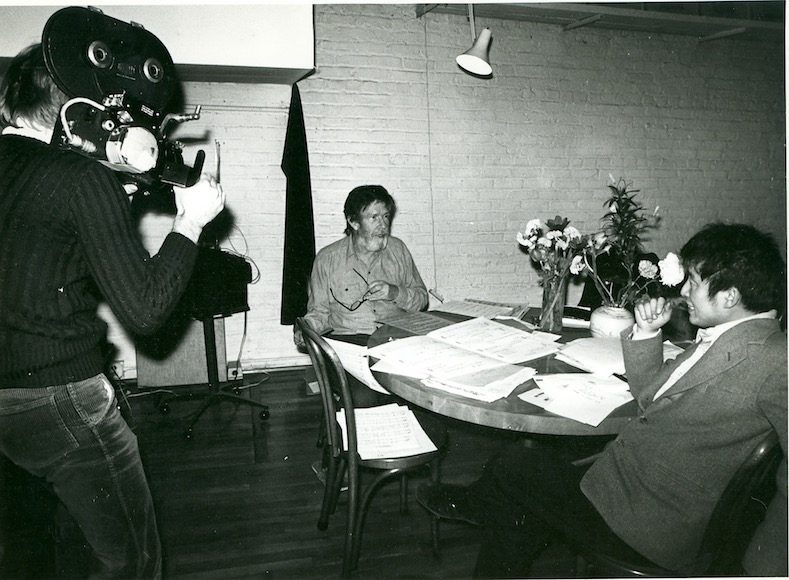
Photo: The John Cage Trust and the John Cage Collection, Northwestern University Music Library
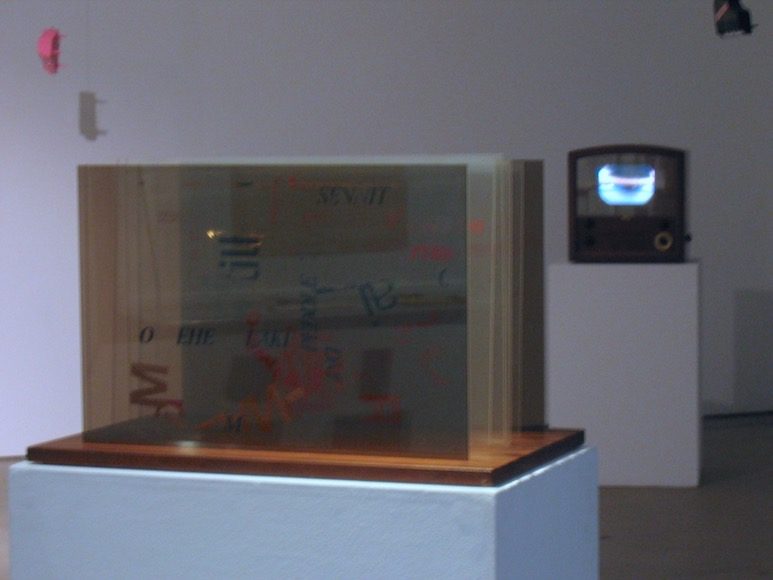
Installation view
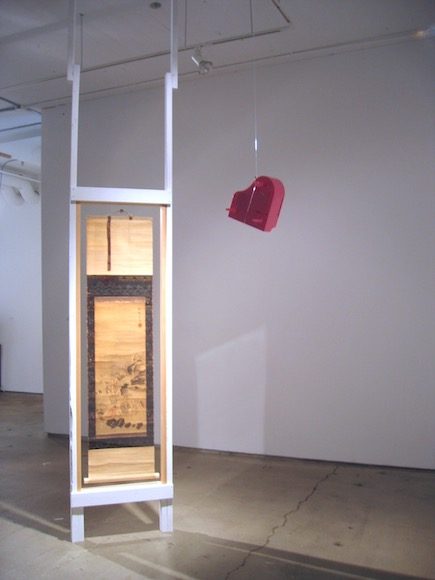
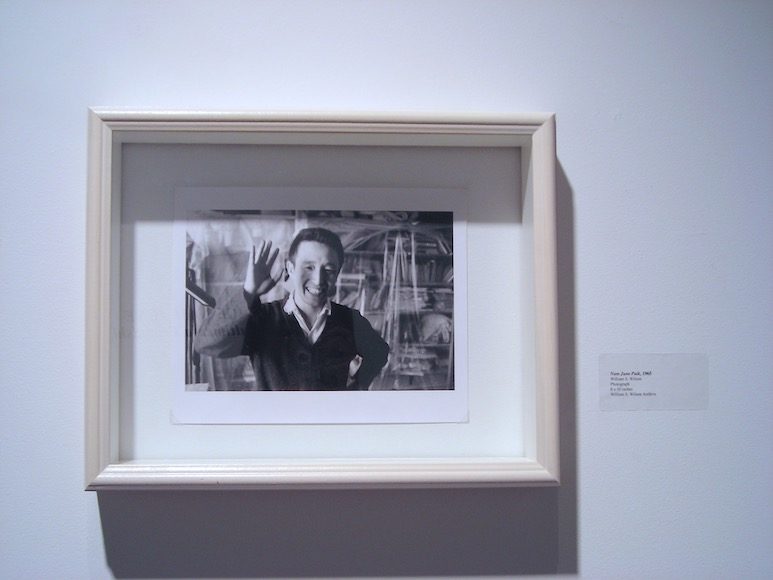
Nam June Paik, 1965
William S. Wilson Archive
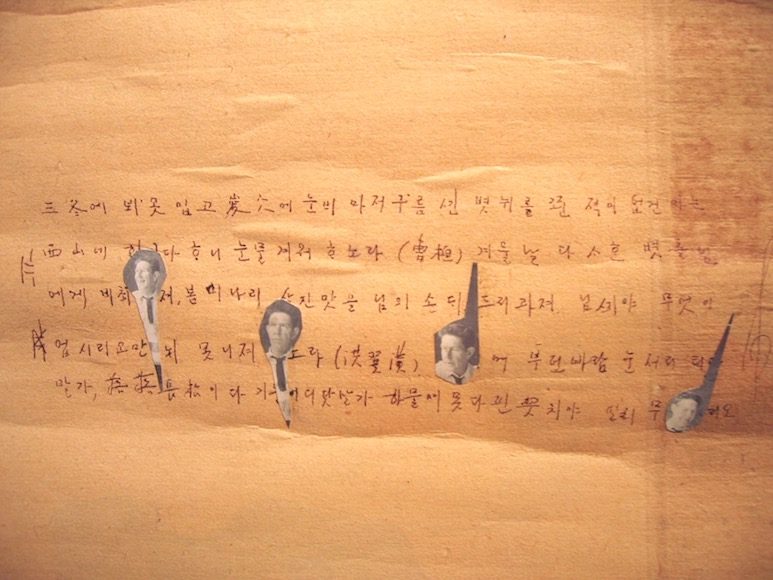
Nam June Paik
Mixed media on antique scroll
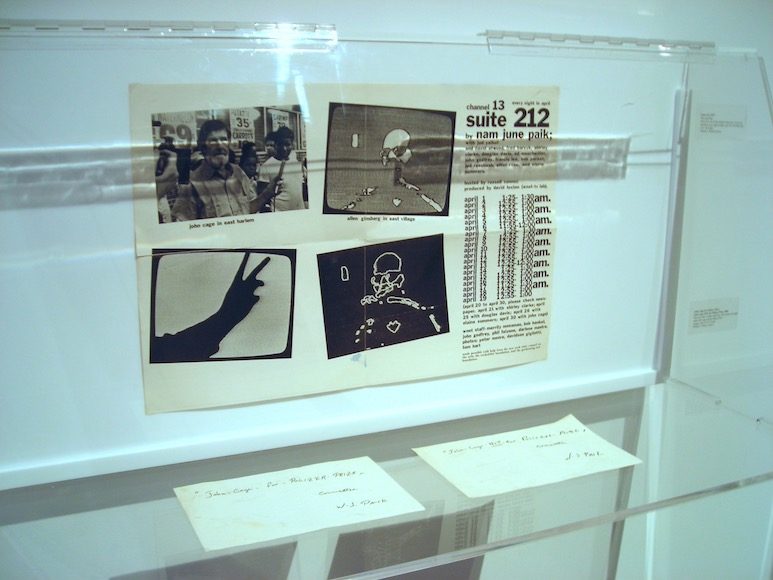
Suite 212, 1977
Poster for a set of film sketches about New York to be broadcast every night in April; April 30 with John Cage
John Cage for Pulitzer Prize, John Cage NOT for Pulitzer Prize, 1965
Nam June Paik’s double-sided flyer with contrary messages about John Cage and the Pulitzer Prize
William S. Wilson Archive
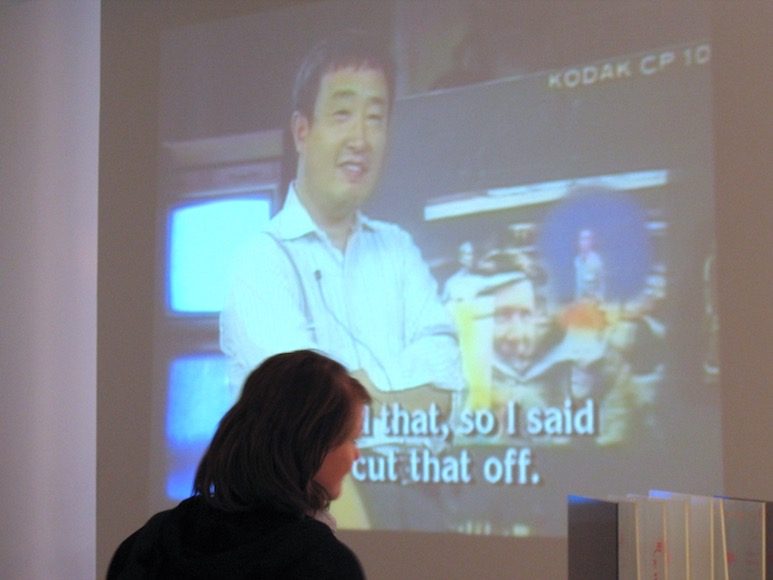
Directed by Elliot Caplan
Excerpt from Cage/Cunningham in which Nam June Paik talks about cutting off John Cage’s necktie
Courtesy of Cunningham Dance Foundation
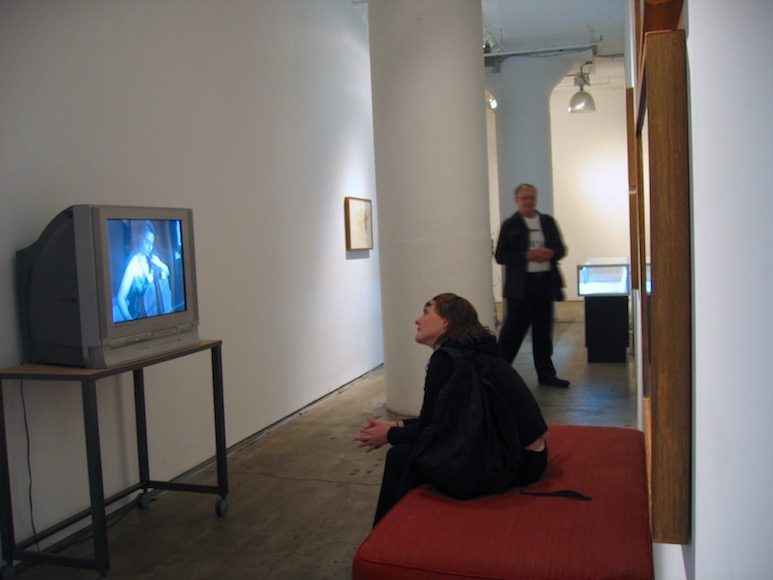
Filmed by Ira Schneider
Courtesy of Shigeko Kubota
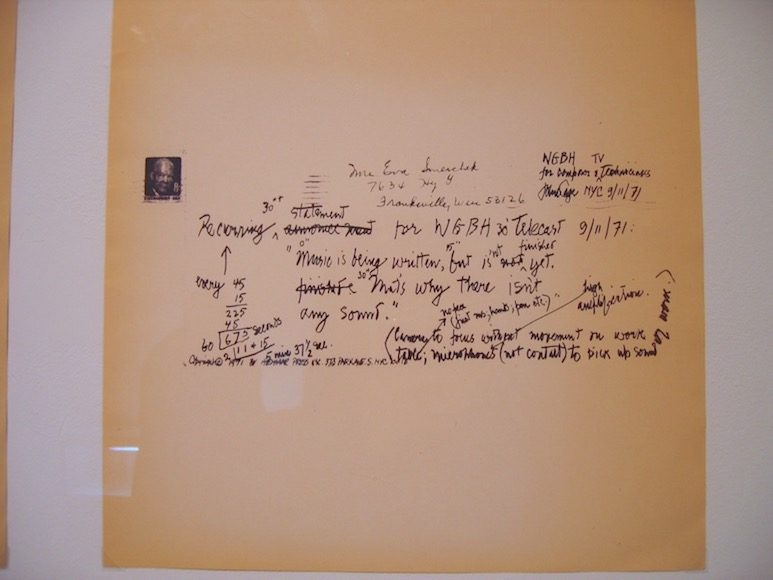
John Cage
Correspondence and notes regarding WGBH-TV, a composition for TV that John Cage dedicated to Nam June Paik
New York City and Cambridge, Mass, September 1971
Courtesy of C.F. Peters Corporation
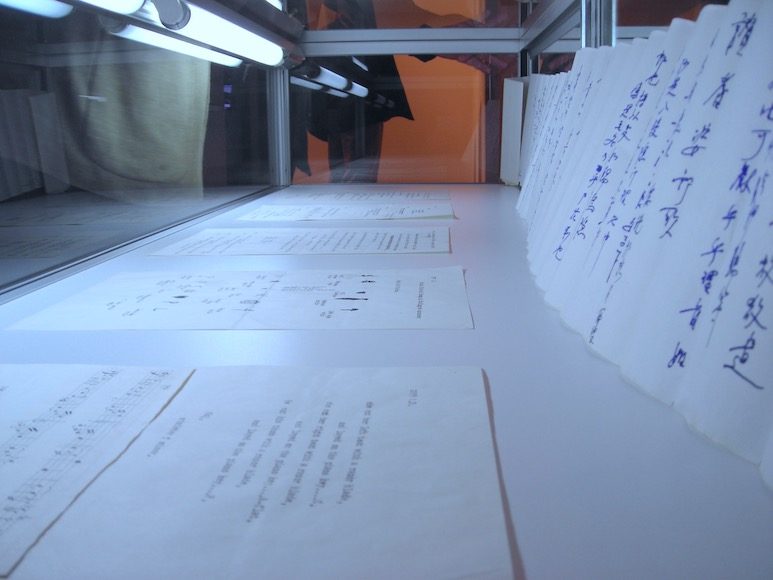
William S. Wilson Archive
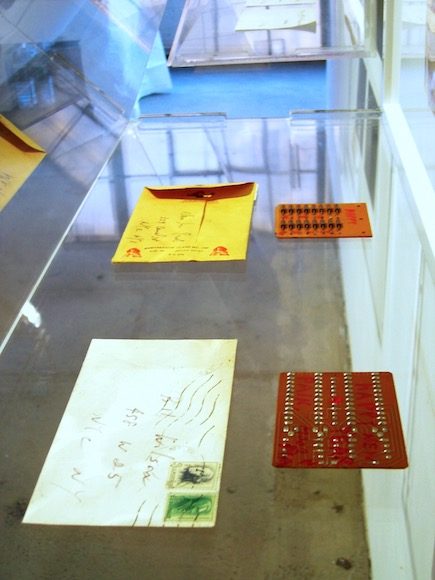
Nam June Paik’s New Years greeting card to William S. Wilson
Acrylic on circuit board
William S. Wilson Archive
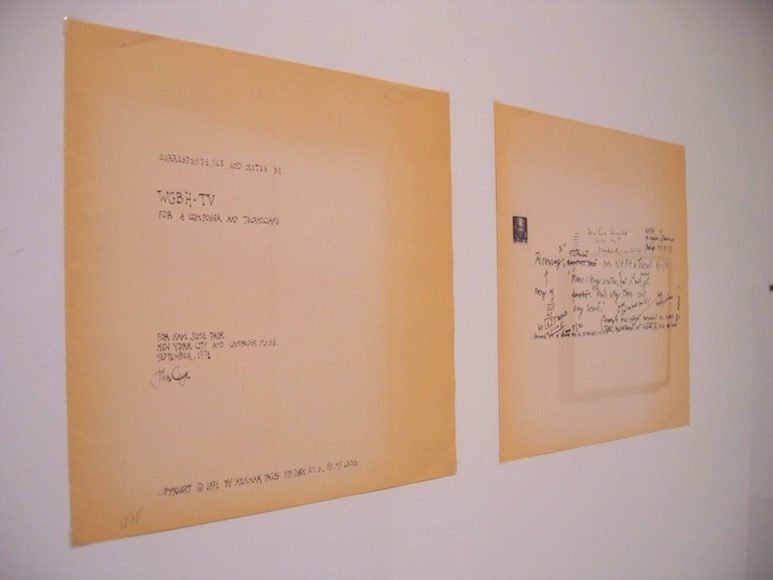
John Cage
Correspondence and notes regarding WGBH-TV, a composition for TV that John Cage dedicated to Nam June Paik
New York City and Cambridge, Mass, September 1971
Courtesy of C.F. Peters Corporation
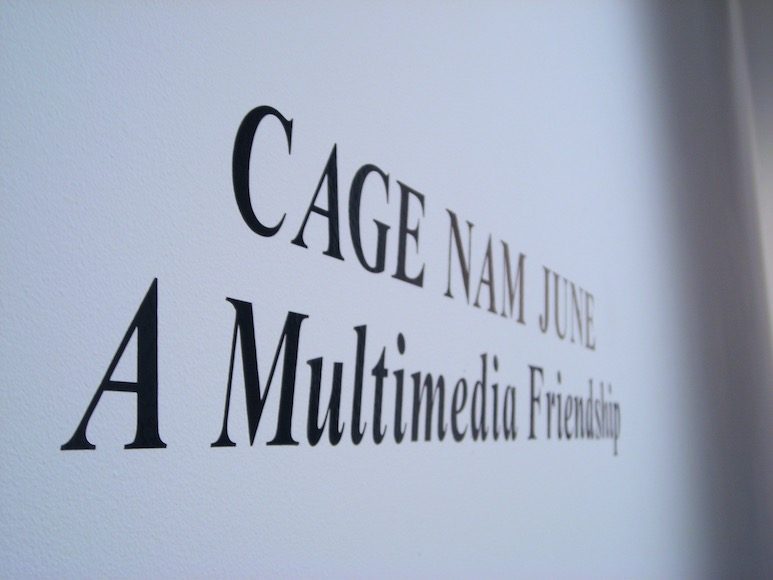
As part of its Homage to Nam June Paik series, ZONE: Chelsea Center for the Arts celebrates the nearly thirty-five year association between Nam June Paik and John Cage– two uniquely inventive and versatile creators.
In representing the association of these two joyously adventurous artists, ZONE: Chelsea Center for the Arts will exhibit representative scores, videos, music, drawings, photographs, writings, installations, video sculpture, objets sonores, and conceptual art. At the opening night performance on October 5, 7pm, the renowned Cage interpreter, Margaret Leng Tan, will celebrate the Cage-Paik legacy with her toy piano/toy instrumental Hommage à John Cage/Nam June Paik. In addition to the opening night’s event, the gallery will host a panel discussion on October 19, 7pm. The panel consists of the Fluxus artist Alison Knowles, the dancer and dance historian David Vaughan, the vocalist/composer Joan La Barbara and the writer and critic William S. Wilson, four people who knew and worked with Cage and Paik.
October 5 – November 3, 2006
Opening reception:
Thursday October 5th, 2006
6-8pm
with performance by Margaret Leng Tan
Panel discussion on October 19, 2006
7pm, with
Alison Knowles
David Vaughan
Joan La Barbara
William S. Wilson
Kenneth Silverman
ZONE: Chelsea Center for the Arts celebrates the nearly thirty-five year association between John Cage and Nam June Paik. Uniquely adventurous and versatile creators, they worked in music, video, radio, writing, sculpture, film, drama, dance, and graphic arts.
Their pasts make the association seem at first unlikely. Born in Los Angeles, the grandson and great-grandson of Methodist ministers, Cage was a college dropout, twenty years older than Paik. Born in Seoul, Korea, to wealthy owners of a textile company, Paik completed a graduate dissertation at the University of Tokyo.
The differences marked their earliest contacts. They met in 1958 at the annual International Holiday Courses for New Music in Darmstadt, Germany. As a composer, Cage was already well known for his use of chance operations based on an ancient Chinese text. Having heard that the American called upon Asiatic thought, Paik attended Cage’s concert, he later confessed, with a “very cynical mind.”
Cage had early misgivings about Paik, too. In 1960 he attended a performance in Cologne of Paik’s “Etude for Pianoforte.” After playing a few minutes of Chopin, Paik picked up long scissors and jumped off the stage to where Cage was sitting. Then, as Cage recalled the event, Paik “cut off my tie and began to shred my clothes, as if to rip them off of me.” After also pouring over Cage a bottle of shampoo, Paik barged through the crowd and out the door. The ‘Etude,’ Cage said, left him with a “grim memory” of Paik.
Yet they came to intensely enjoy and admire each other. As Paik continued listening to Cage’s music in Darmstadt, he recalled, “slowly, slowly I got turned on. At the end of the concert I was a completely different man.” In his 1991 Two Teachershe remarked that “Cage means ‘bird cage’ in English, but he didn’t lock me up; he liberated me.” The violence in some of Paik’s performance art—e.g. smashing a violin to bits–remained foreign to Cage, who abhorred violence. Still, when asked what he would miss most if he died tomorrow, he reportedly replied: “The conversation of Nam June Paik.”
They especially drew together after 1964, when Paik moved to New York City, settling into a loft in Soho. He loved the city, as did Cage. Much as Cage fed into a live electronic piece open telephone lines from Luchow’s Restaurant and Con Edison’s 14thstreet power station, Paik created a set of film sketches about New York, Suite 212 (1977), his title invoking the city’s area code. Cage introduced him around town, and they worked with many of the same people–Laurie Anderson, Joseph Beuys, Merce Cunningham. Paik also performed in concerts and events by Fluxus, the Dada-ish group born out of Cage’s experimental composition classes at the New School.
And when apart they often corresponded. Paik-like, Paik sometime sent banal postcards that he comically transformed by funny drawings and cartoons. Once he mailed Cage a greeting card made of bank receipts for bum checks he had written. “Your writing is superb,” Cage replied. “Send me the least little thing you write.”
Paik remains best known, of course, for seeing early on and then exploring the artistic possibilities of television. His 1963 show at a gallery in Wuppertal, Germany, was the first exhibition anywhere of Video art. Later he helped develop the video synthesizer; translating electronic impulses into abstract colors and shapes, it made the cathode ray tube a canvas. Among his many other video creations are human-shaped sculptures built out of TV monitors, including a video sculpture of Cage. The New York Timesart critic John Canaday called him the “John Cage of the ordinary domestic TV set.”
A performer by nature—like Paik—Cage appeared on such popular early television programs as The Henry Morgan Showand I’ve Got A Secret; the Italian TV version of Double or Nothing (as a contestant); and on one of the earliest cable TV programs. He eagerly lent himself to Paik’s many video films. In Paik’s Global Groovehe tells an anecdote; A Tribute to John Cageshows him seated outdoors in Harvard Square, not-playing 4’33”. For Paik’s ambitious Good Morning Mr. Orwell—a one-hour TV show transmitted by satellite between New York and Paris—Cage not only appeared but also made a lithograph to be sold by Paik in raising the million-dollar production cost.
Cage particularly admired Paik’s Zen for Film—sixty minutes of shapeshifting specks of dust. He preferred it, he said, “to any film I’ve ever seen before or after. It’s one of the great films.” Paik could be an equally ardent fan, He imagined establishing a Laser TV station to broadcast nothing but John Cage.
The current exhibition at ZONE: Chelsea offers some of the looks and sounds of this multimedia friendship—representative scores, music, videos, drawings, photographs, writings, installations, video sculpture, objets sonores, and conceptual art.
Kenneth Silverman
Kenneth Silverman is Professor Emeritus of English at New York University. His books include Timothy Dwight; A Cultural History of The American Revolution; The Life and Times of Cotton Mathe; Edgar A. Poe Mournful and Never-ending Remembrance; HOUDINI!!!.; and Lightning Man: The Accursed Life of Samuel F. B. Morse. A fellow of the American Academy of Arts and Sciences, he has received the Bancroft Prize in American History, the Pulitzer Prize for Biography, the Edgar Award of the Mystery Writers of America, and the Christopher Literary Award of the Society of American Magicians. Currently he is writing a biography of John Cage.
SPOTLIGHT
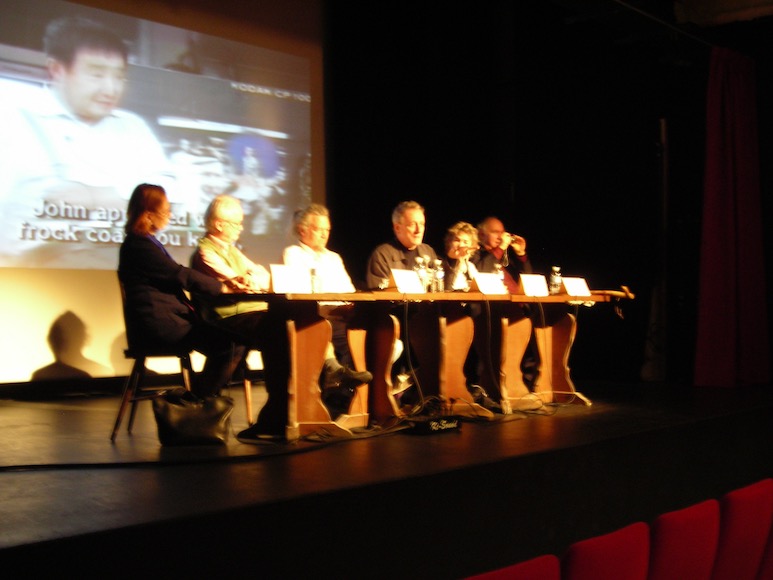
Panel Discussion in Paris, Moderated by George Quasha
Saturday, October 28th 2006, 6pm
Accompanying the exhibition, CAGE NAM JUNE: A Multimedia Friendship, ZONE: Chelsea Center for the Arts presents:
Panel Discussion in Paris during Digital Video Art Fair
Moderated by George Quasha
Saturday, October 28th, 2006
6pm at Theatre La Reine Blanche
2 bis passage Ruelle, 75019 Paris, France
Panelists:
Born in France, Jackie Matisse lived in New York until 1954. Since then she has lived in Paris making frequent visits to New York. Between 1959 and 1968 she worked for Marcel Duchamp, completing the assemblage of the “Boite en Valise”. At this time using her married name, Jacqueline Monnier, she began to make kites “in order to play with color and line in the sky”. In 1980 she showed kites which were created to be used underwater at the Betty Parsons Gallery in New York, and since then has continued to make kitelike objects intended for three different kinds of space: the sky, the sea, and indoor space, all linked through her use of movement.
Charles Stein is the author of Persephone Unveiled (a study of the Eleusinian Mysteries), eleven books of poetry including The Hat Rack Treeand the forthcoming From Mimir’s Headfrom Station Hill /Barrytown, Ltd., a long-term poetic project, theforestforthetrees, translations of Greek epic, philosophical, and Hermetic poetry; a critical study of the poet Charles Olson and his use of the writings of C.G. Jung called The Black Chrysanthemum(also from Station Hill Press). His work has been anthologized in such collections as Poems for the Millennium (U. of California Press), Hazy Moon Enlightenment(Shambala),Technicians of the Sacred(U. of California Press),Text-Sound Texts(Morrow), Open Poetry(Simon and Schuster) and has appeared in such magazines as American Poetry Review, Alcheringa, Caterpillar, Conjunctions, Ear Magazine, Perspectives of New Music, Temblor, Sulphur, Open Space,and many other poetry journals. He was the editor of an anthology Being=Space X Action: Searches for Freedom of Mind in Art, Mathematics and Mysticism.
He received an Individual Writer’s Grant from the National endowment for the Arts for 1978-79, and was the winner of the Wallace Stevens Poetry Prize in 1973.
He plays Gregory Bateson in video-installation artist Gary Hill’sWhy Do Things Get in a Muddle?and is one of the two performers (with George Quasha) in Gary Hill’s Tale Enclosure. He collaborated with Gary Hill and Paulina Wallenberg-Olsson in the creation of Dark Resonances—a performance/installation at the Colosseum in Rome. For three decades he has worked with George Quasha in the production of “dialogical” critical texts, including three books: Hand Heard/liminal objects: Gary Hill’s Projective Installations—Number 1, Tall Ships: Gary Hill’s Projective Installations—Number 2,and Viewer: Gary Hill’s Projective Installations—Number 3.His other collaborative writing with George Quasha related to Gary Hill’s work has appeared in art catalogues of the Stedelijk Museum of Amsterdam, the Kunsthalle of Vienna, the Barbara Gladstone Gallery of New York, Public Access of Toronto, the Voyager Laserdisc Gary Hill, etc.
In collaboration with Gary Hill and George Quasha, he has performed at the Long Beach Museum of Art, California, The Museum of Modern Art, Oxford, England, The Rhinebeck Performing Arts Center.
As a multi-media artist and “Sound Poet” his graphic “Text-Sound Texts” have been anthologized and performed by himself and others; his drawings have appeared as accompaniments to his own poetry. He has performed his sound poetry at the International Sound Poetry Festival, The New Moon Festival, The New Image Theater, as well as at numerous University sponsored, music, and literary venues.
His photography has appeared in exhibitions at The College Art Gallery of SUNY New Paltz, The University of Connecticut Library in Storrs, The Arnolfini Arts Center in Rhinebeck, New York, the Robert Louis Stevenson School in New York, New York, and on the covers of numerous books of poetry and fiction.
He holds a Ph.D. in literature and has taught at SUNY Albany, Bard College’s Music Program Zero, and The Naropa Institute.
He currently resides in Barrytown, New York.
Gary Hill is one of the most important contemporary artists investigating the relationships between words and electronic images — an inquiry that has dominated the video art of the past decade. Originally trained as a sculptor, Hill began working in video in 1973 and has produced a major body of single-channel videotapes and video installations that includes some of the most significant works in the field of video art. His first tapes explored formal properties of the emerging medium, particularly through integral conjunctions of electronic visual and audio elements.
His installations and tapes have been seen throughout the world, in group exhibitions at The Museum of Modern Art, New York; Centre Georges Pompidou, Paris; Documenta 8, Kassel, West Germany; Long Beach Museum of Art, California; Stedelijk Museum, Amsterdam, and the Video Sculpture Retrospective 1963-1989, Cologne, West Germany, among other festivals and institutions. Hill’s work has also been the subject of retrospectives and one-person shows at The American Center, Paris; Whitney Museum of American Art, New York; 2nd International Video Week, St. Gervais, Geneva; Musee d’Art Moderne, Villeneuve d’Ascq, France; and The Museum of Modern Art, New York.
Gary Hill created new large scale works for his solo exhibition at the Fondation Cartier pour l’art contemporain in Paris, October 27, 2006 – February 4, 2007.
.
Molly Davies started making experimental films in the late 1960s in New York City. For multi media performance pieces she has collaborated with artists including John Cage, David Tudor, Takehisa Kosugi, Lou Harrison, Michael Nyman, Alvin Curran, Fred Frith, Suzushi Hanayagi, Sage Cowles, Polly Motley, Jackie Matisse and Anne Carson. Her work has been presented at such sites as the Venice Film Festival, the Centre Pompidou, Musee de l’Art Moderne de la Ville de Paris, Musee Art Contemporain Lyon, The Getty, Theatre Am Turm, the Whitney Museum, the Walter Arts Center, the Kitchen, La Mama Etc., Dance Theatre Workshop, Jacob’s Pillow Dance Festival and the Indonesian Dance Festival. Her work is in the collections of the Getty Research Institute, the Musee Art Contemporain Lyon and the Walker Art Center. She teaches courses in design for inter-media performances at universities in the United States, Europe and Asia.
Artist and poet George Quasha works across mediums to explore principles in common within language, sculpture, drawing, video, sound, installation, and performance. His axial stones and axialdrawingshave been exhibited in New York’s Chelsea at Baumgartner Gallery and ZONE Chelsea Center for the Arts, and elsewhere, and are featured in the newly published book, Axial Stones: An Art of Precarious Balance(Foreword by Carter Ratcliff) (North Atlantic Books: Berkeley).
For his video installation art is: Speaking Portraits (in the performative indicative),he has filmed some 500 artists, poets, and composers (in 7 countries and 17 languages) saying “what art is.” His video works (including Pulp Friction, Axial Objects, Verbal Objects) have appeared internationally in museums, galleries, schools, and biennials. A 25 year performance collaboration (video/language/sound) continues with Gary Hill and Charles Stein.
In 2006 he was awarded a Guggenheim Fellowship in video art.
His other 14 books include poetry (Somapoetics, Giving the Lily Back Her Hands,Ainu Dreams [with Chie Hasegawa],Preverbs); anthologies (America a Prophecy [with Jerome Rothenberg], Open Poetry[with Ronald Gross],An Active Anthology[with Susan Quasha], TheStation Hill Blanchot Reader); and writing on art (Gary Hill: Language Willing;with Charles Stein: Tall Ships, HanD HearD/liminal objects,Viewer).
Awards include a National Endowment for the Arts Fellowship in poetry. He has taught at Stony Brook University (SUNY), Bard College, the New School, and Naropa University. With Susan Quasha he is founder/publisher of Barrytown/Station Hill Press in Barrytown, New York.
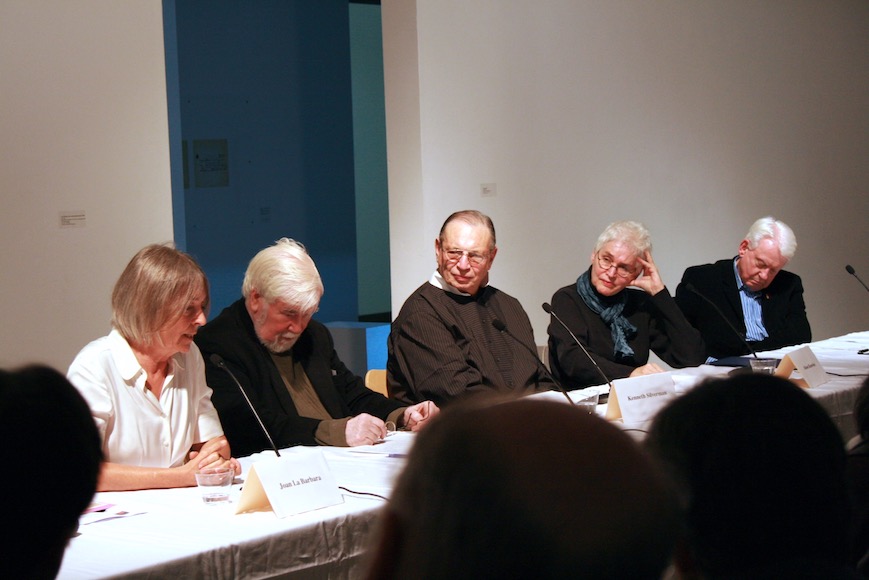
Panel Discussion, Moderated by Kenneth Silverman
Thursday, October 19th 2006, 7pm
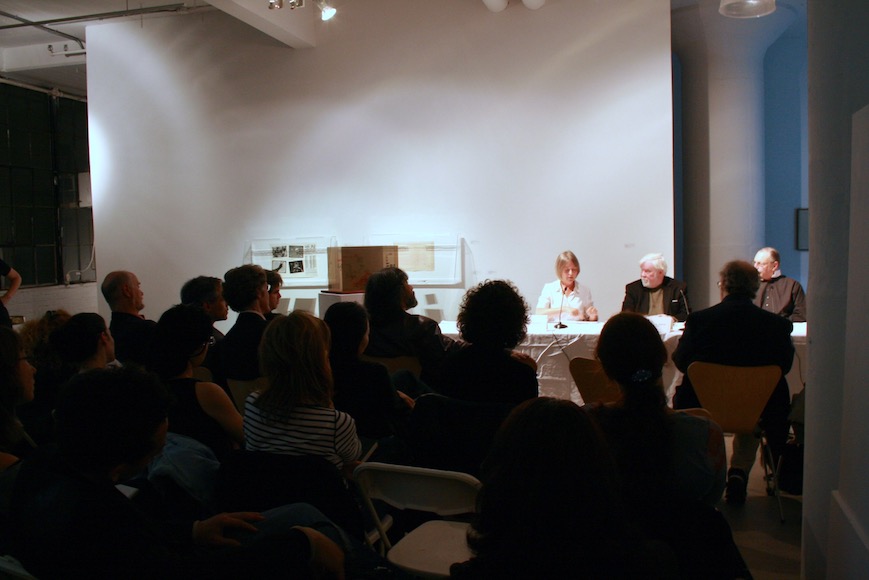
Panel Discussion, Moderated by Kenneth Silverman
Thursday, October 19th 2006, 7pm
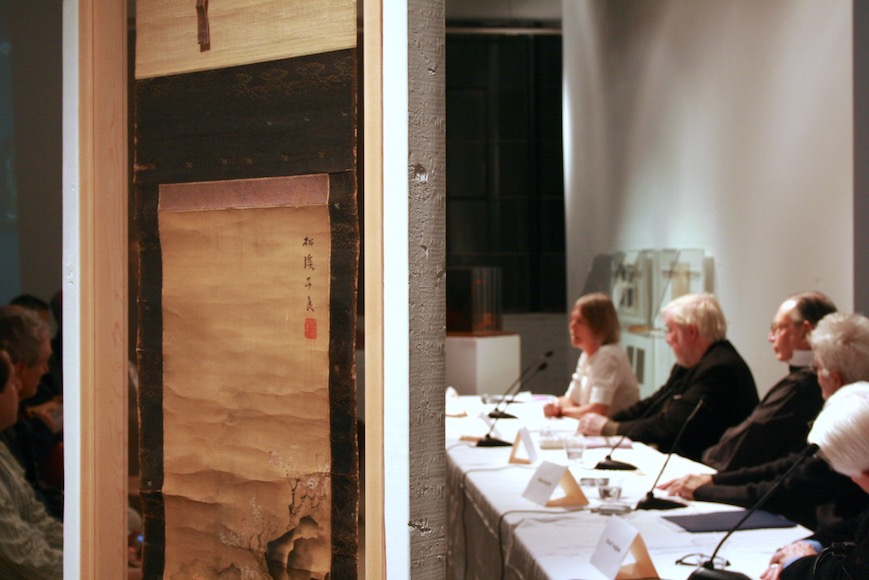
Panel Discussion, Moderated by Kenneth Silverman
Thursday, October 19th 2006, 7pm
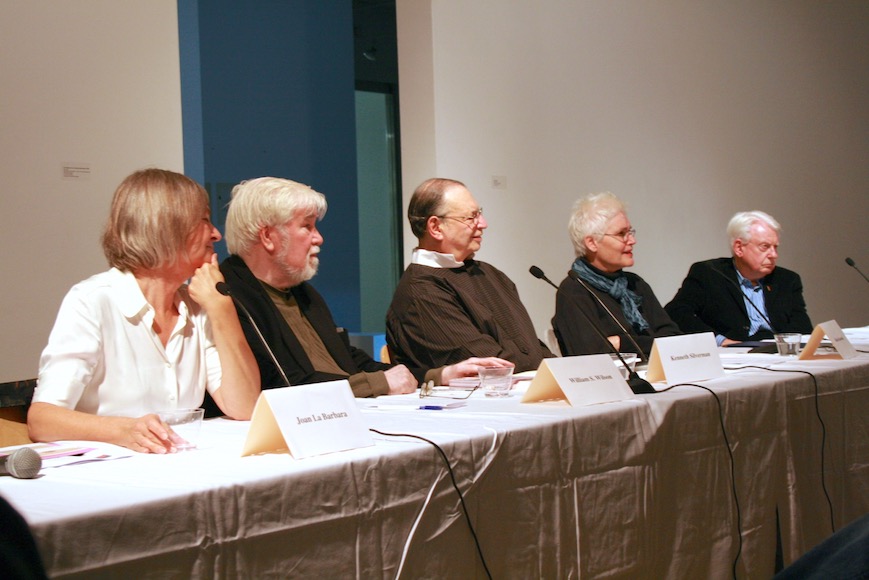
Panel Discussion, Moderated by Kenneth Silverman
Thursday, October 19th 2006, 7pm
Accompanying the exhibition, CAGE NAM JUNE: A Multimedia Friendship, ZONE: Chelsea Center for the Arts presents a Panel Discussion with four people who knew and worked with Cage and Paik.
Thursday, October 19th, 200 at 6:30 pm
Panelists:
the Fluxus artist Alison Knowles
vocalist/composer Joan La Barbara
dancer and dance historian David Vaughan
writer and critic William S. Wilson
curator Kenneth Silverman
ALISON KNOWLES was born in New York City. She works in the field of visual art, making performances, sound works and radio shows (Hoerspiele). She attended Scarsdale High School, Middlebury College and graduated with an honors degree in Fine Art from Pratt Institute in Brooklyn. She married the Fluxus artist Dick Higgins and worked for the Something Else Press doing special editions by silkscreen, engaged in events with the Fluxus group and birthed twin daughters Hannah B and Jessica in 1964. Her installation The Big Book was made in New York, and toured in Canada and Europe, collapsing in California in the mid-seventies. For three years she was Associate Professor of Art at California Institute of the Arts in the department of Alan Kaprow. Her computer instigated dwelling The House Of Dust is located in California as a permanent installation. During the late seventies and eighties she extended her studio to include a shop in Barrytown, New York, a stone’s throw from the Hudson River. During the eighties she has worked in Italy and Germany and Japan doing multiples, unique pieces and radio plays. Her second walk-in book The Book Of Bean from 1983 appeared in Venice. Her most recent exhibitions include “Um-Laut” in Koln and “Indigo Island” in Warsaw. She maintains a studio at 122 Spring St. in New York.
DAVID VAUGHAN was born in London and educated at Oxford University. He studied ballet with Marie Rambert and Audrey de Vos. In 1950 he continued his studies at the School of American Ballet, later studying with Antony Tudor, Richard Thomas, and Merce Cunningham. He has worked as a dancer, actor, singer, and choreographer, on film and television, in ballet and modern dance companies, and in cabaret. He is associate editor of Ballet Review and the Encyclopaedia of Dance and Ballet. He is the author of Frederick Ashton and His Ballets and the forthcoming Merce Cunningham: 50 Years, for which he received a Guggenheim Fellowship; and he has contributed to Dancers on a Plane: Cage, Cunningham, Johns and to Ornella Volta’s Satie et Ia danse. He has been associated with Merce Cunningham Dance Company since 1959, as archivist since 1976. He has taught dance history and criticism at New York University, the State University of New York/College at Purchase, the Laban Centre for Movement and Dance, the University of Chicago Dance History Seminar, and the American Dance Festival Critics’ Conference. In 1986 he was Regents’ Lecturer at the University of California.
JOAN LA BARBARA was born in Philadelphia, PA. Educated at Syracuse and New York Universities and Tanglewood/Berkshire Music Center, studying voice with Helen Boatwright, Phyllis Curtin and Marian Szekely-Freschl, she learned her compositional tools as an apprentice with the numerous composers with whom she has worked for three decades. Her career as a composer/performer/soundartist explores the human voice as a multi-faceted instrument expanding traditional boundaries, creating works for multiple voices, chamber ensembles, music theater, orchestra and interactive technology, developing a unique vocabulary of experimental and extended vocal techniques: multiphonics, circular singing, ululation and glottal clicks that have become her “signature sounds”, garnering awards in the U.S. and Europe. La Barbara has collaborated with artists including Lita Albuquerque, Cathey Billian, Melody Sumner Carnahan, Judy Chicago, Ed Emshwiller, Kenneth Goldsmith, Peter Gordon, Bruce Nauman, Steina, Woody Vasulka and Lawrence Weiner. In the early part of her career, she performed and recorded with Steve Reich, Philip Glass and jazz artists Jim Hall, Hubert Laws, Enrico Rava and arranger Don Sebesky, developing her own unique vocal/instrumental sound. In addition to the internationally-acclaimed “Three Voices for Joan La Barbara by Morton Feldman” “Joan La Barbara Singing through John Cage” and “Joan La Barbara/Sound Paintings”, she has recorded for A&M Horizon, Centaur, Deutsche Grammophon, Elektra-Nonesuch, Mode, Music & Arts, MusicMasters, Musical Heritage, Newport Classic, New World, Sony, Virgin, Voyager and Wergo. Recording projects as singer and/or producer include “Only: Works for Voice and Instruments” by Morton Feldman”; “Rothko Chapel/Why Patterns”, “John Cage at Summerstage with Joan La Barbara, Leonard Stein and William Winant”, Cage’s final concert performance on July 23, 1992 in NYC’s Central Park. La Barbara was Artistic Director of the Carnegie Hall series, “When Morty met John”, celebrating the music of John Cage and Morton Feldman and The New York School; is Artistic Director, Curator and Host of “Insights”, a new series of encounters with distinguished composers, for The American Music Center; and co-produces the “EMF 10” concert series in New York City. Joan La Barbara is a member of SAG, AFTRA, AEA, The American Music Center, and is a composer and publisher member of ASCAP.
WILLIAM S. WILSON, who was graduated with a Ph.D. from Yale University, has taught the writing of fiction at Queens College and the Graduate Writing Division of Columbia University. Author of a book of short stories, Why I don’t write like Franz Kafka, he has been writing essays about visual art since 1964. Nam June Paik lived in a studio in his house during1964-65. He has given talks about Eva Hesse in Paris, London, San Francisco and New York.
KENNETH SILVERMAN – Curator Kenneth Silverman is Professor Emeritus of English at New York University. His books include Timothy Dwight; A Cultural History of the American Revolution; The Life and Times of Cotton Mathe; Edgar A. Poe: Mournful and Never-ending Remembrance; HOUDINI!!!.; and Lightning Man: The Accursed Life of Samuel F. B. Morse. A fellow of the American Academy of Arts and Sciences, he has received the Bancroft Prize in American History, the Pulitzer Prize for Biography, the Edgar Award of the Mystery Writers of America, and the Christopher Literary Award of the Society of American Magicians. Currently he is writing a biography of John Cage.
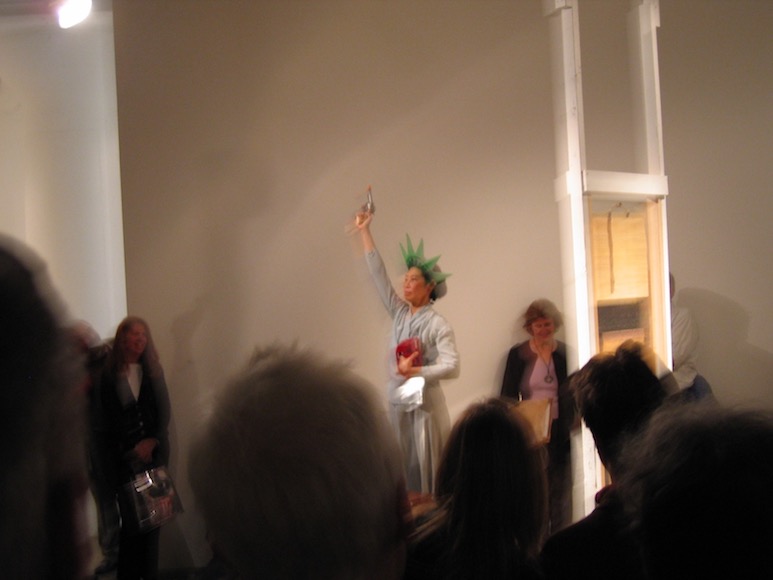
Hommage to John Cage and Nam June Paik by Margaret Leng Tan
Thursday, October 5th 2006, 7pm
Accompanying the exhibition, CAGE NAM JUNE: A Multimedia Friendship, at the opening night performance on October 5, 7pm, the renowned Cage interpreter, Margaret Leng Tan, celebrate the Cage-Paik legacy with her toy piano/toy instrumental Hommage to John Cage/Nam June Paik.
Thursday, October 5th, 2006 at 7 pm
Program
HOMMAGE to JOHN CAGE/NAM JUNE PAIK
by
MARGARET LENG TAN
toy piano, toy instruments
HOMMAGE to NAM JUNE PAIK (2006) – first performance
Margaret Leng Tan
SUITE FOR TOY PIANO (1948)
John Cage
4′ 33″ (1952
John Cage
from OLD McDONALD’S YELLOW SUBMARINE (2004) – BICYCLE LEE HOOKER toy piano, bicycle bell and horn, train whistle
Erik Griswold
CHOOKS – toy piano and wood blocks
Margaret Leng Tan
5’29.75″ FOR SIX TOY PLAYER PIANOS / Elegy for Nam June (2006) – first performance
Erik Griswold
STAR-SPANGLED ETUDE #3 (“Furling Banner”) (1996) – toy piano, siren, whistle, cap gun
Raphael Mostel
Margaret Leng Tan has established herself as a major force within the American avant-garde; a highly visible, talented and visionary pianist whose work sidesteps perceived artificial boundaries within the usual concert experience and creates a new level of communication with listeners. Embracing aspects of theater, choreography, performance and even “props” such as the teapot she “plays” in Alvin Lucier’s Nothing is Real,Tan has brought to the avant-garde, a measure of good old-fashioned showmanship tempered with a disciplinary rigor inherited from her mentor John Cage. This has won Tan acceptance far beyond the norm for performers of avant-garde music, as she is regularly featured at international festivals, records often for adventurous labels such as Mode and New Albion and has appeared on American public television, Lincoln Center and even at Carnegie Hall.
Born in Singapore, Tan was the first woman to earn a doctorate from Juilliard, but youthful restlessness and a desire to explore the crosscurrents between Asian music and that of the West led her to Cage. This sparked an active collaboration between Cage and Tan that lasted from 1981 to his death, during which Tan gained recognition as one of the pre-eminent interpreters of Cage’s piano music, partly through her New Albion recordings, Daughters of the Lonesome Isleand The Perilous Night/Four Walls. After Cage’s death in 1992, she was chosen as the featured performer in a tribute to his memory at the 45th Venice Biennale.
Tan takes a lively interest in the musical potential of unconventional and unlikely instruments, and in 1997 her groundbreaking CD, The Art of the Toy Piano on Point Music/Universal Classics elevated the lowly toy piano to the status of a “real” instrument. Tan is certainly the world’s first, and so far, only professional toy piano virtuoso. Since then her curiosity has extended to other toy instruments as well, substantiating her credo “Poor tools require better skills” (Marcel Duchamp).
Tan favors music that confronts and defies the established boundaries of the piano and her toy instruments and has collaborated with like-minded composers to create works for her, such as Somei Satoh, Tan Dun, Michael Nyman, Julia Wolfe, Toby Twining and Ge Gan-ru; she is also a favorite of composer George Crumb. Tan’s authority on matters of Cage has evolved from that of an expert interpreter to responsible scholar protecting the textual integrity of his work; Tan edited the fourth volume of Cage’s piano music for C. F. Peters and in 2006 gave the premiere of his newly discovered 1944 work Chess Pieces, which she also edited for publication. Tan’s Mode DVD of Cage’s Sonatas and Interludes includes a video in which she examines the original, 1940s era preparation materials for the work. Photogenic and comfortable with the camera, Tan is the subject of a feature documentary by filmmaker Evans Chan, Sorceress of the New Piano: The Artistry of Margaret Leng Tan,which receives its New York premiere at the Pioneer Two Boots Theater on September 23/24.
Related:
Categories: exhibitions
Tags: CAGE NAM JUNE
